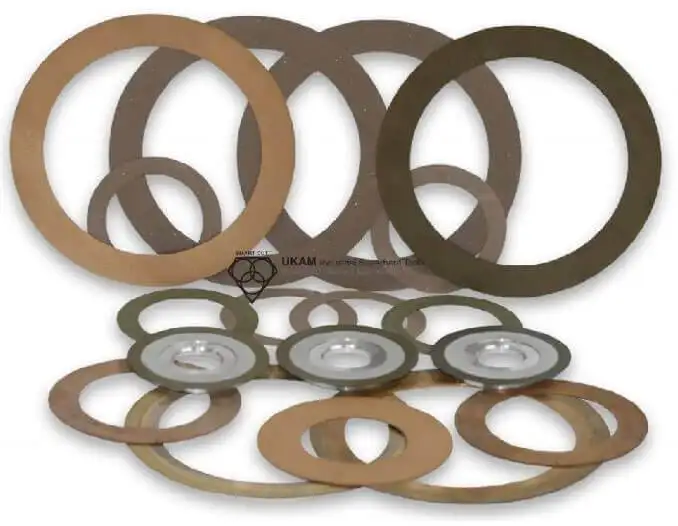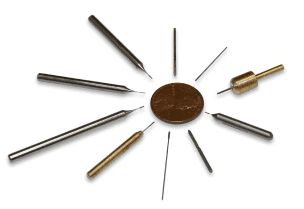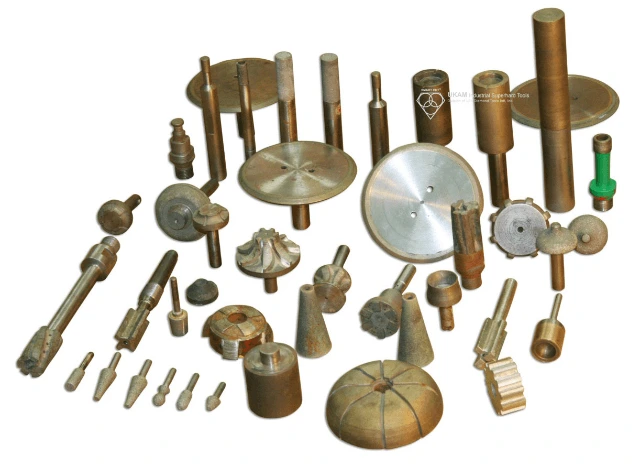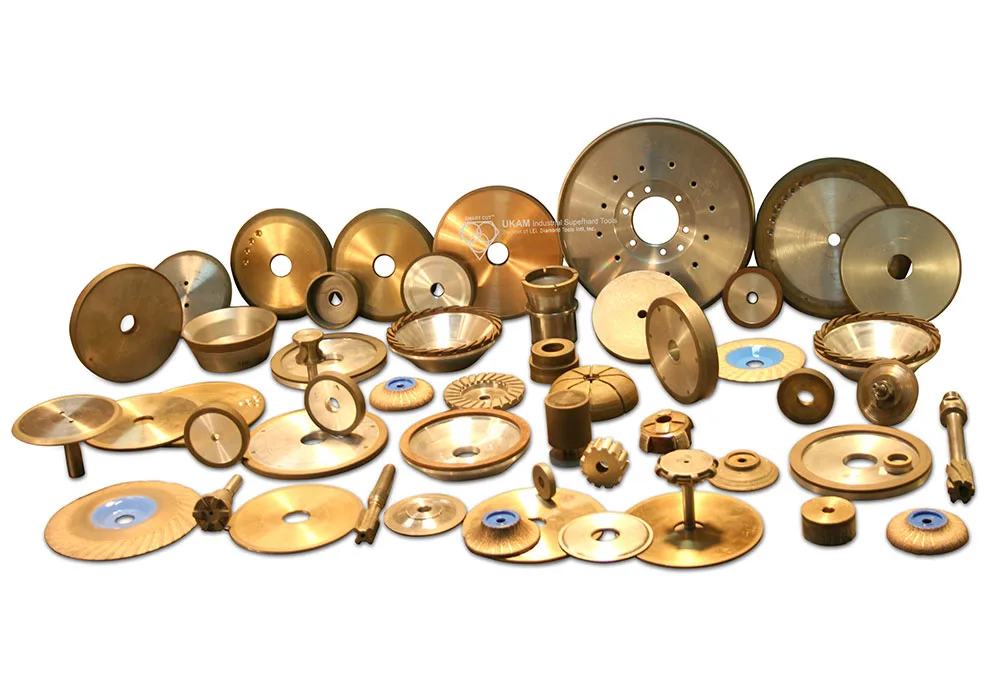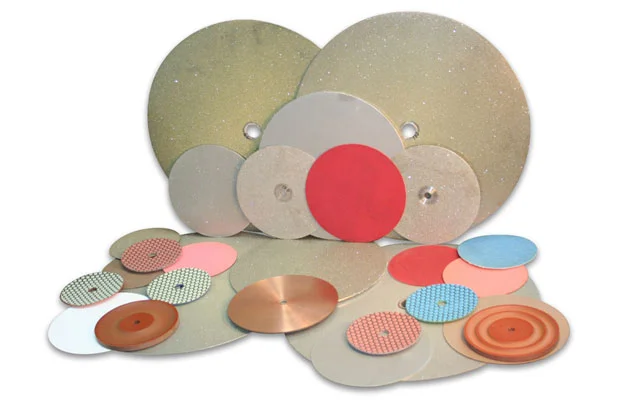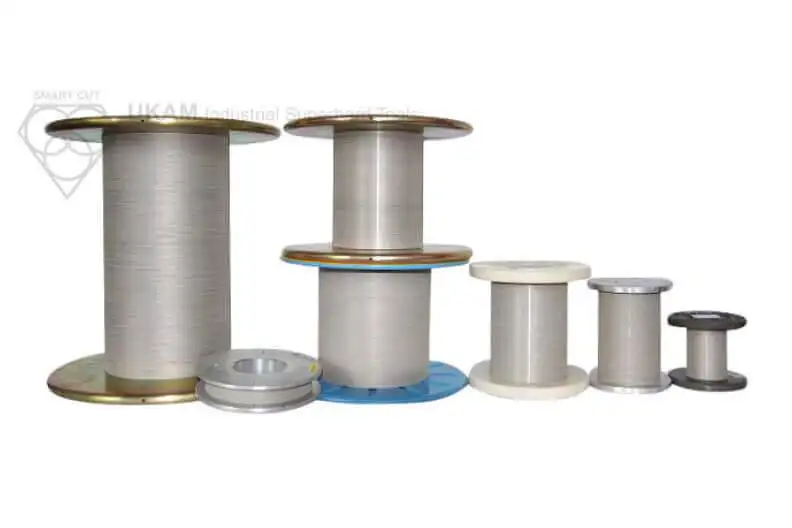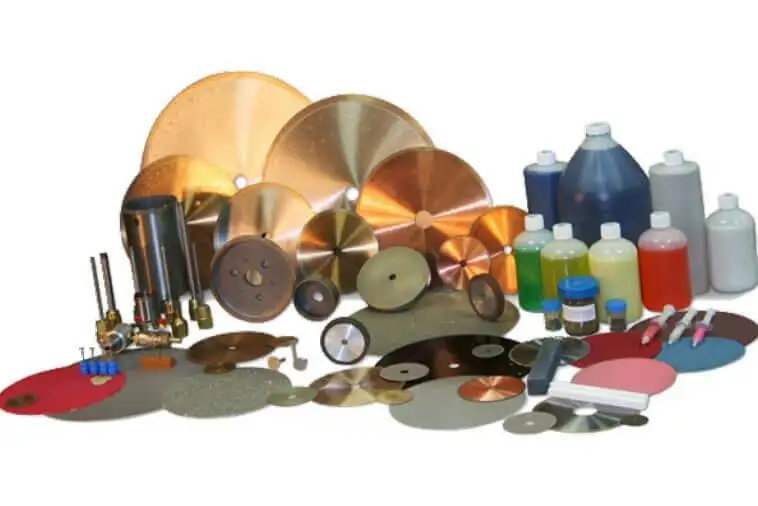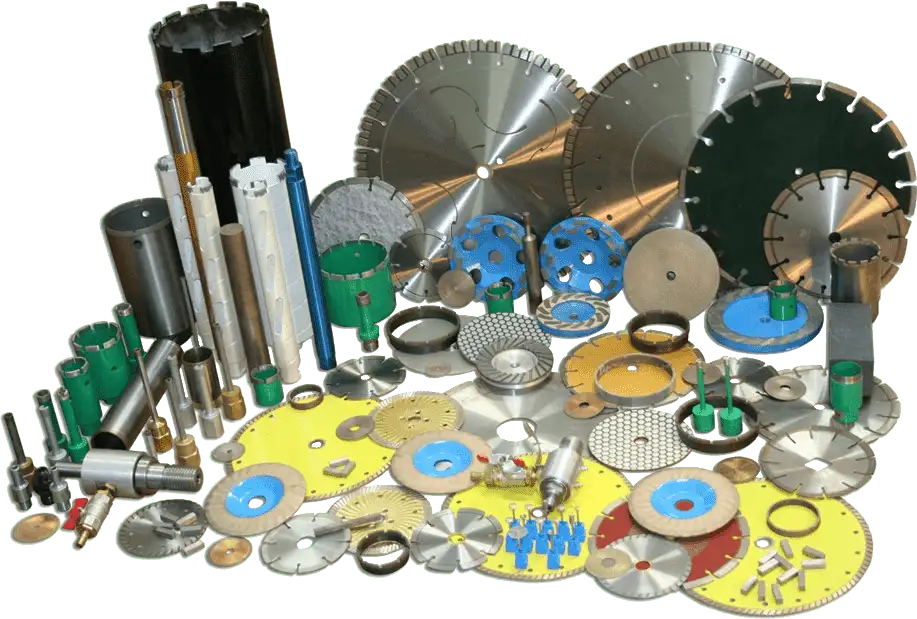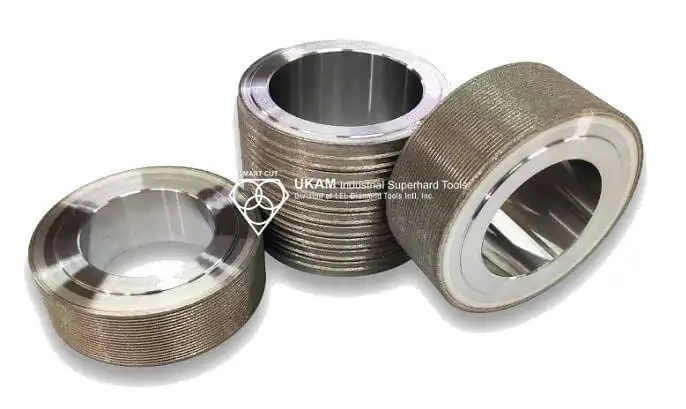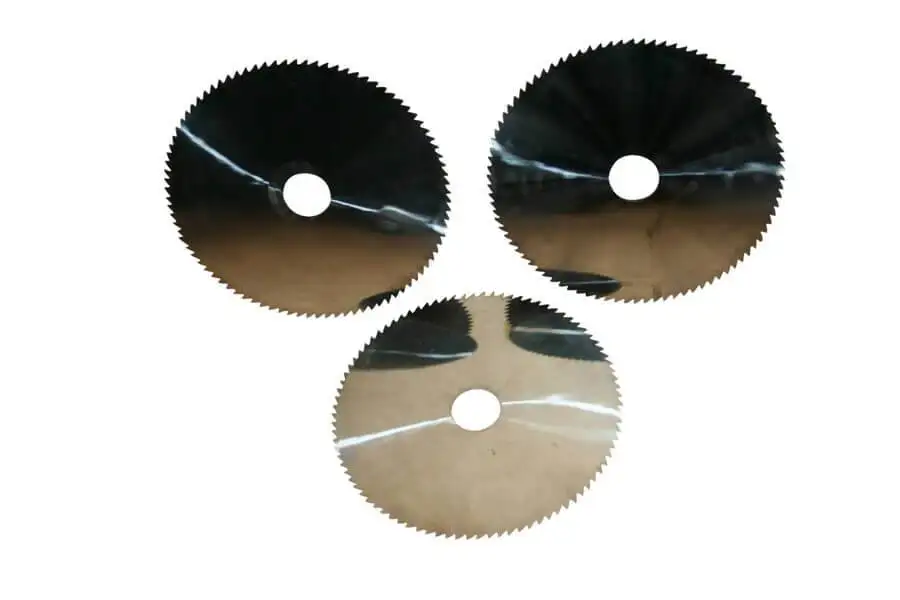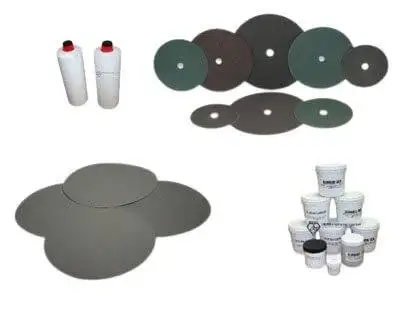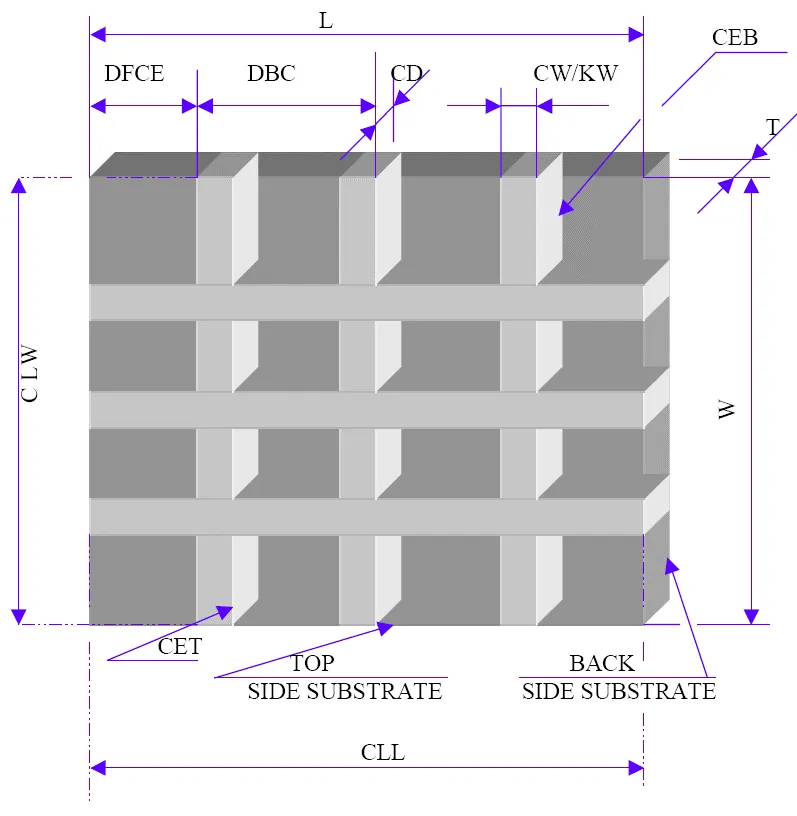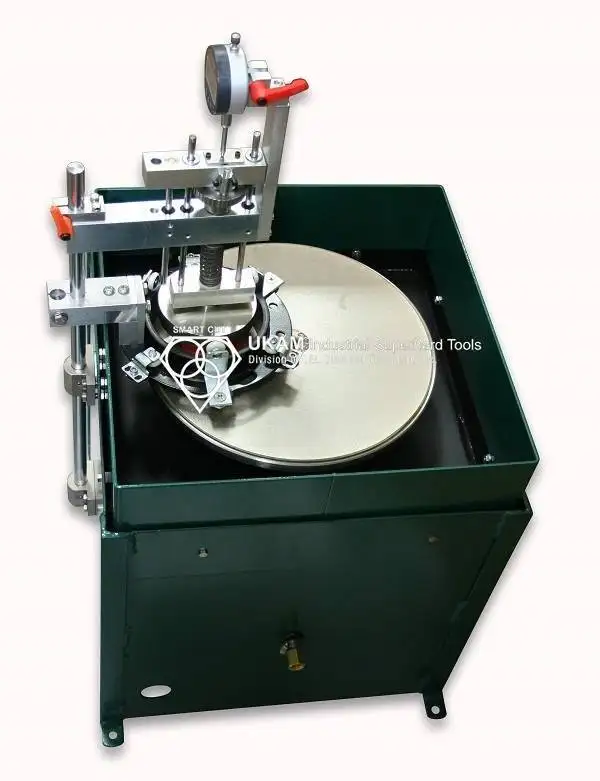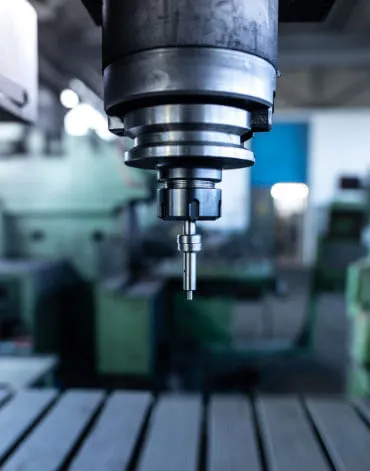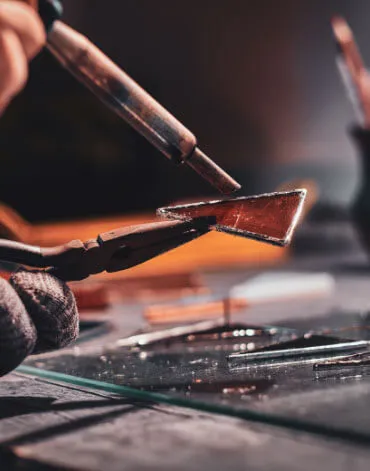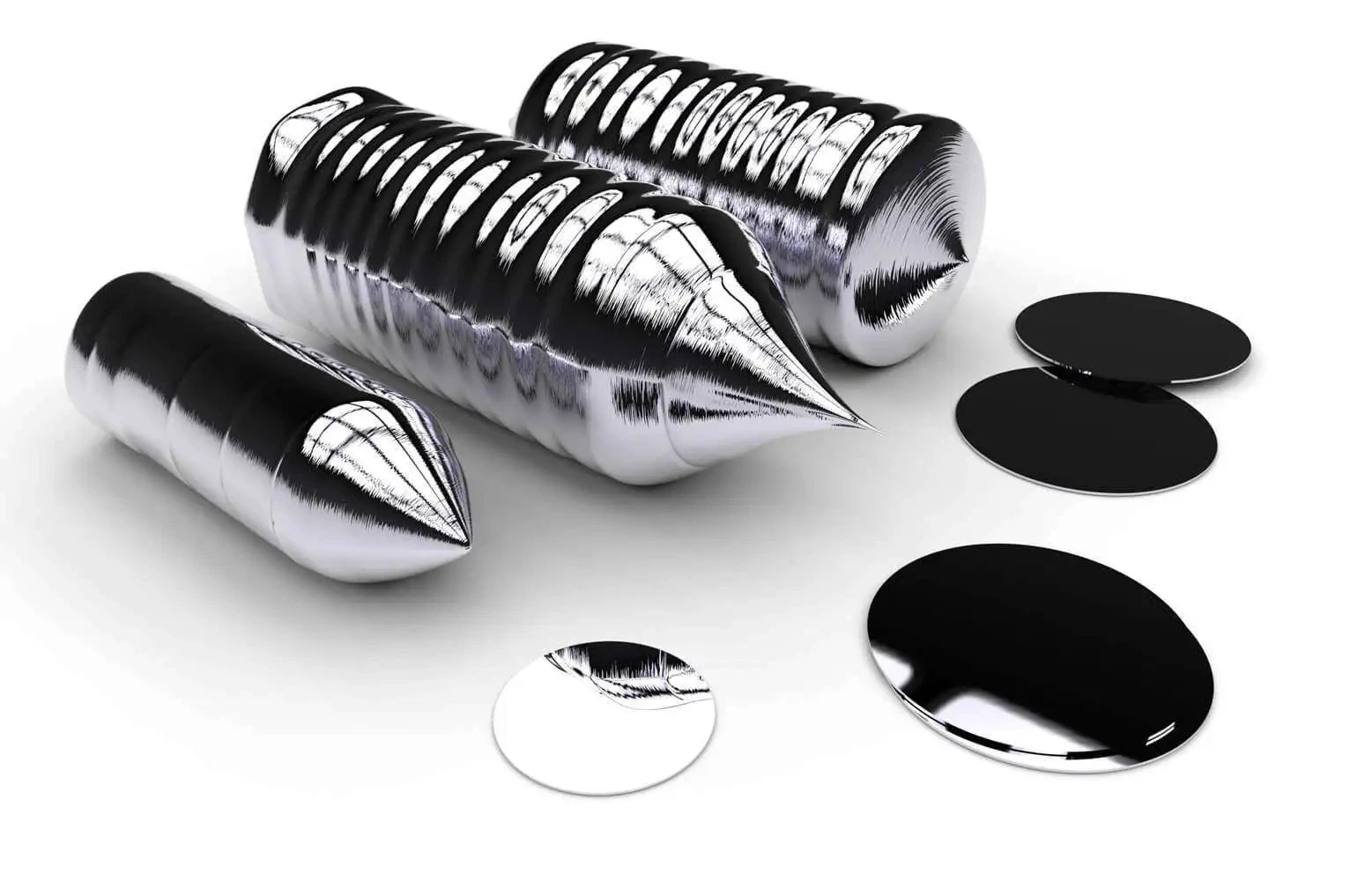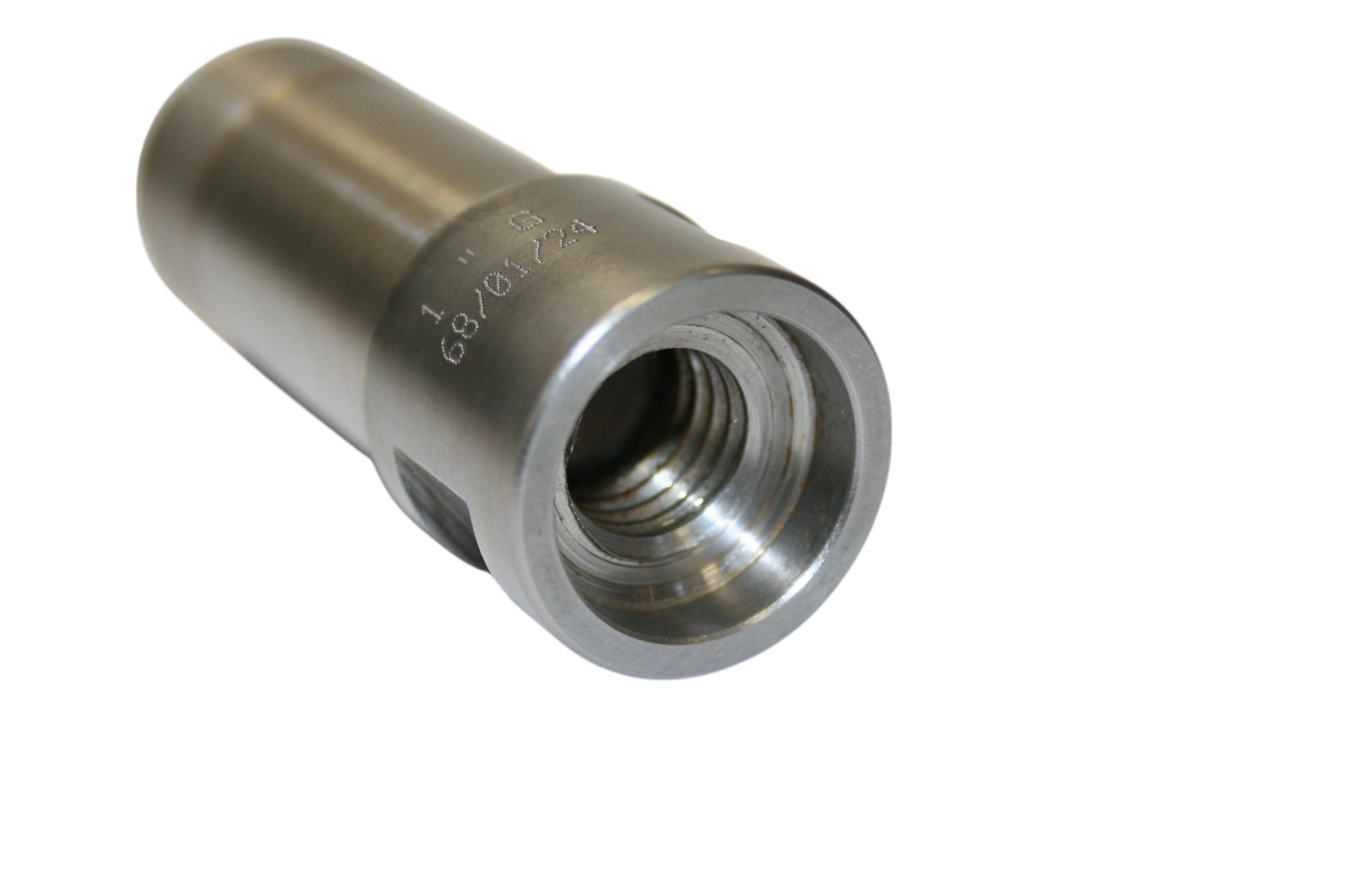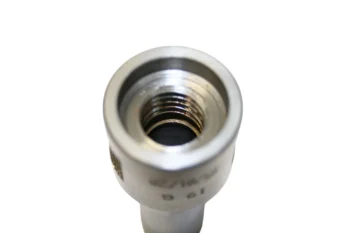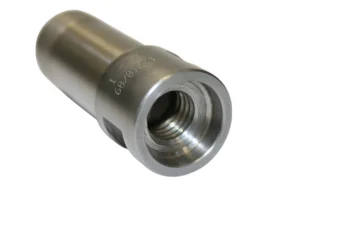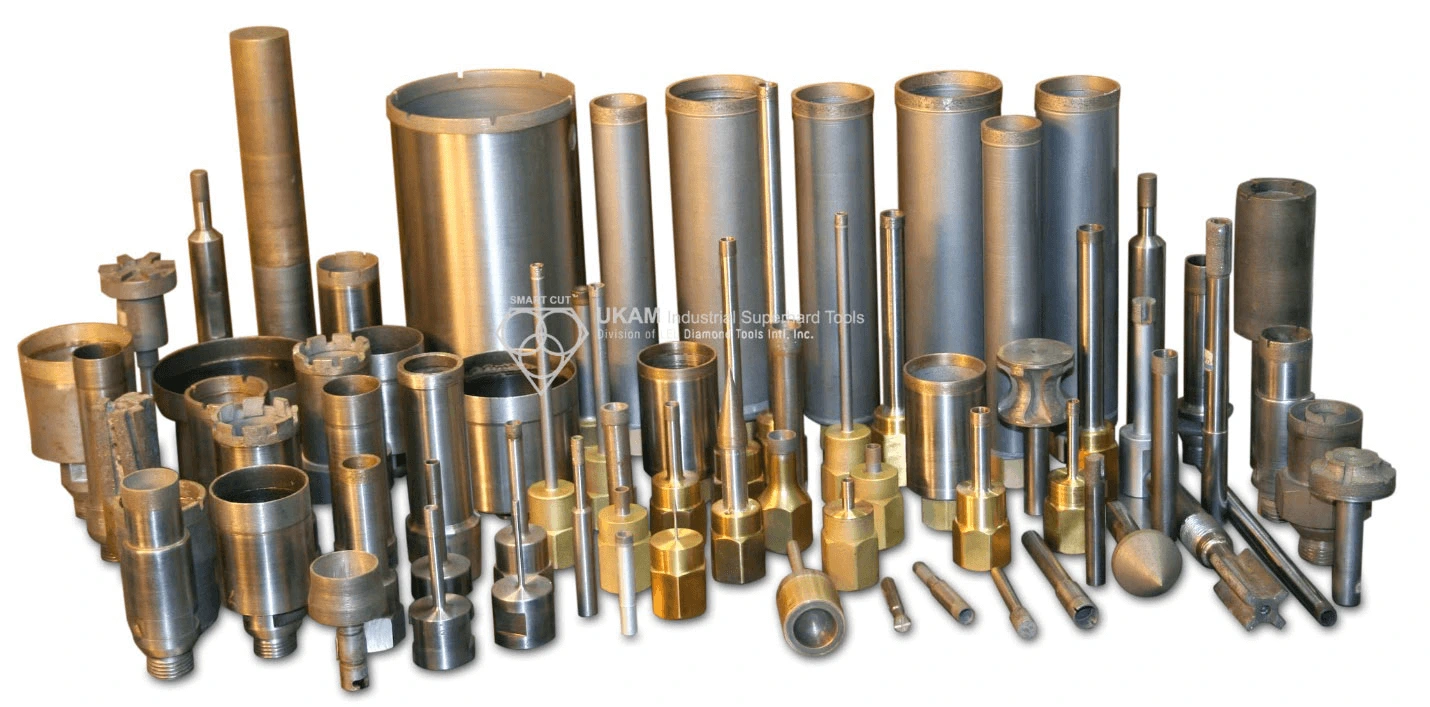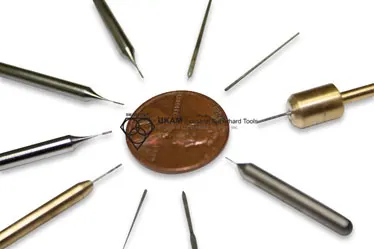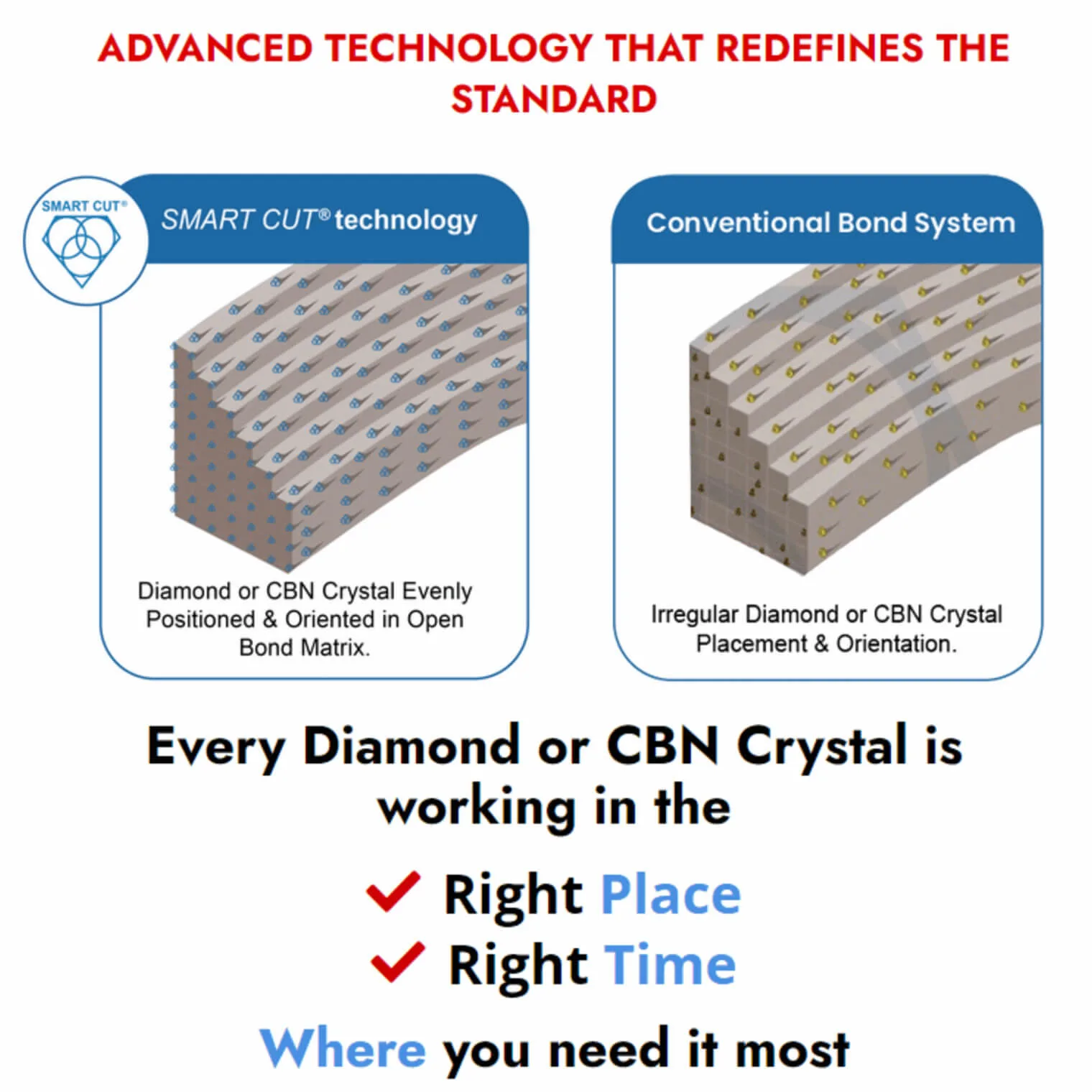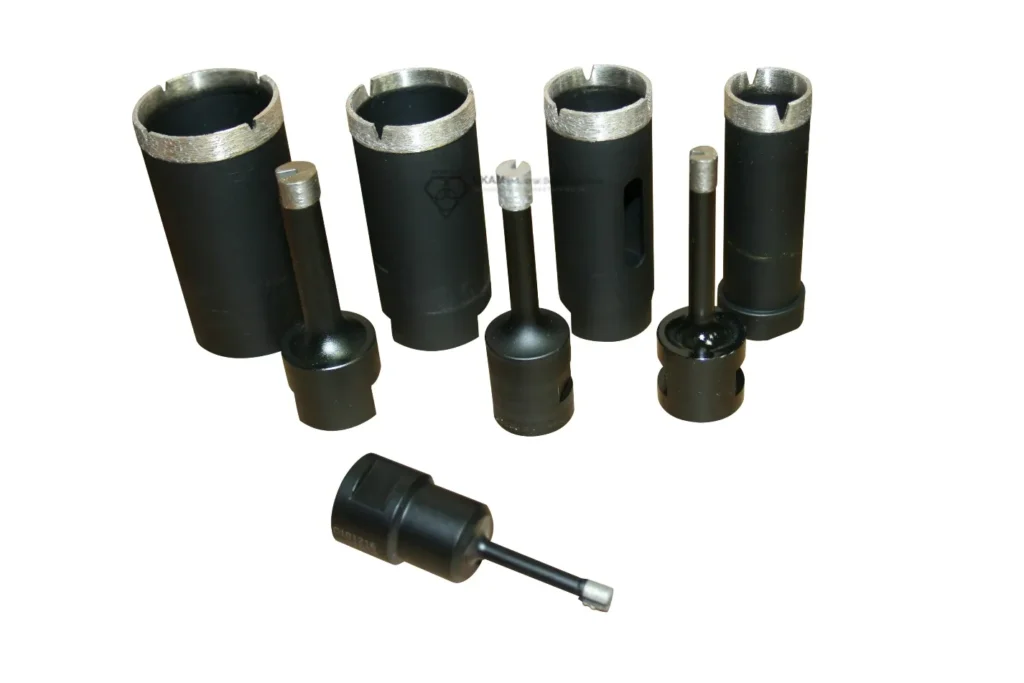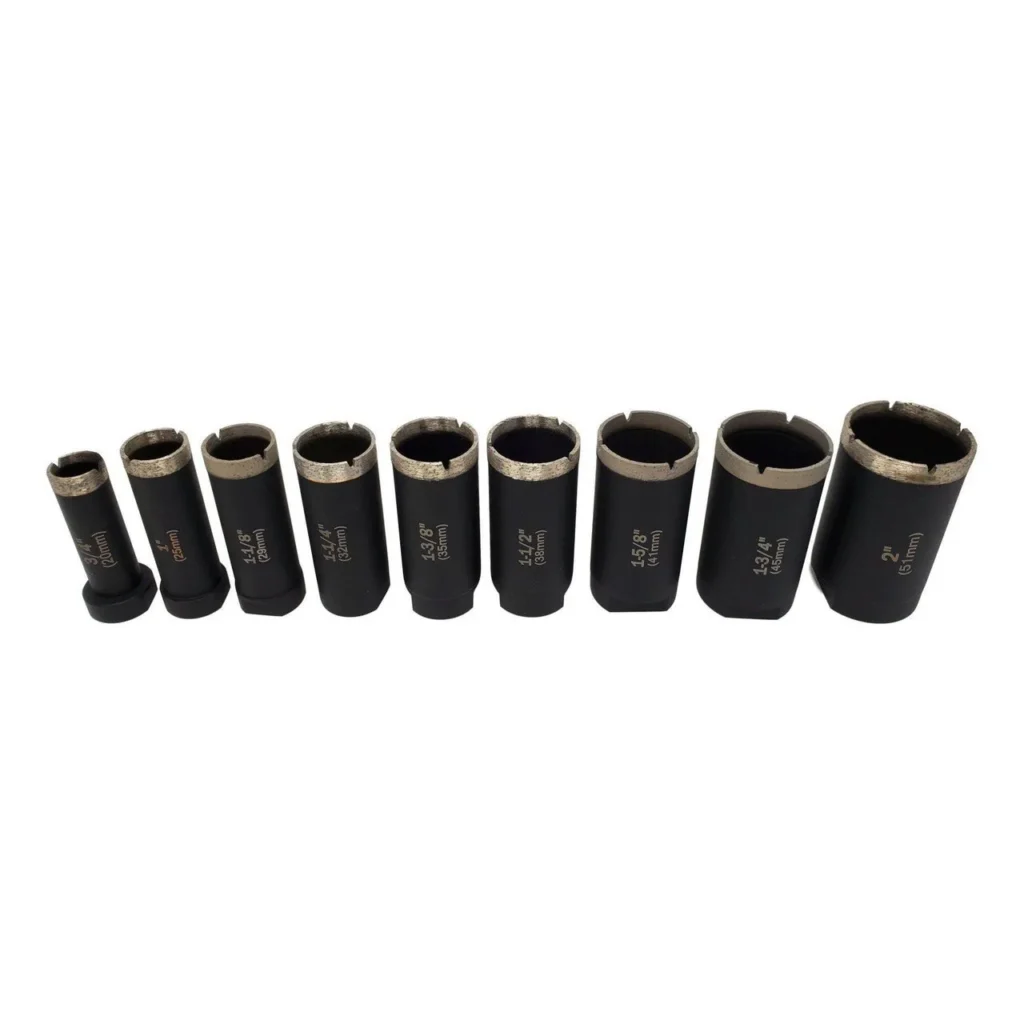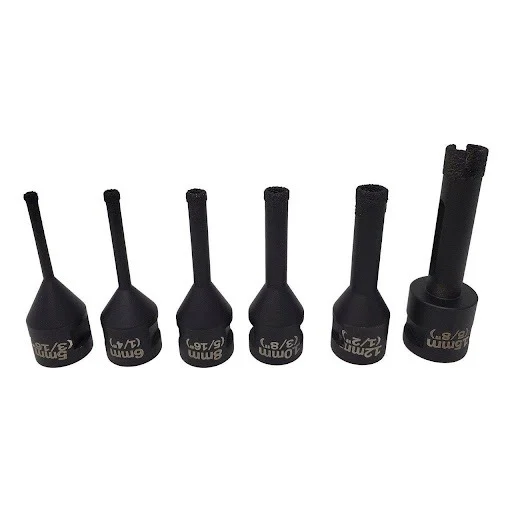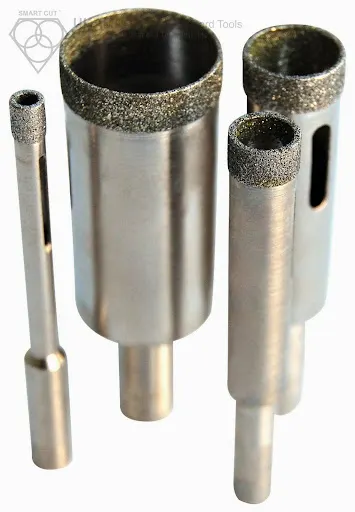-
0 items in quote
No products in the Quote Basket.
115DE SMART CUT® Series
Thin Wall Diamond Core Drills, Sintered (Metal Bond)
SMART CUT® 115DE Series Thin Wall Diamond Core Drills from UKAM Industrial Superhard Tools are engineered to provide exceptional performance in the most demanding drilling applications. Designed for tough, abrasive materials such as glass, alumina, quartz, ruby, YAG, silica, silicon, graphite, composites, and other non-metallic ceramics, these drills feature a sintered metal matrix bond that securely holds the diamond, ensuring high durability and consistent performance. With a wall thickness of 1.2mm (.047”), these core drills are optimized for long-lasting performance, faster drilling speeds, and minimal heat generation.
Each drill is precision-machined from a single piece of steel using high-precision CNC equipment, ensuring tight tolerances, accuracy, and consistency. The diamond depth (height) of 10mm provides the longest possible tool life and ensures the highest performance standards in the industry. The 5/8-11″ female thread ensures compatibility with most standard drilling equipment, offering flexibility and easy integration into existing setups. The medium diamond grit size offers an ideal balance between cutting speed and surface finish quality, making these drills highly versatile for various drilling applications.
DESCRIPTION
SPECIFICATIONS
FREQUENTLY ASKED QUESTIONS
INDUSTRIES USED IN
ACCESSORIES
USAGE RECOMMENDATION
DESCRIPTION
The SMART CUT® is designed to reduce material loss, minimize deformation, and generate less heat, allowing for cleaner cuts with minimal chipping. The high diamond concentration allows for faster drilling speeds (1 to 2 inches per minute) while ensuring a superior surface finish. These core drills also preserve the true microstructure of the material, ensuring high-quality results even in the most challenging materials. The long tool life, reduced heat generation, and high performance make these drills ideal for industries requiring precision and efficiency in their drilling processes.
The precision-engineered steel body and sintered bond technology further enhance the stability and strength of the drills, ensuring vibration resistance and stable operation throughout their lifespan. Whether used in deep drilling applications or for more precise tasks, the SMART CUT® 115DE Series delivers reliable performance with consistent results.
Incorporating SMART CUT® technology, these drills offer fast drilling speeds, minimal tool wear, and the ability to maintain consistent performance across a wide range of materials and applications. The precision tolerances and adaptability make these core drills an ideal choice for professional users who demand optimal performance, high efficiency, and unmatched tool life.
SPECIFICATIONS
All drills are available with either 5/8-11″ female thread to fit water swivel adapter Model 5811
Diameters Available From Stock: 1/8” (3.20mm) to 2” (100mm)
Bond Type: sintered (metal bond)
Wall thickness: .051” (1.3mm)
Mounting Type: 5/8-11” female
Drill Depth: 1.5” (38.1mm)
Diamond Size: 100/120 mesh
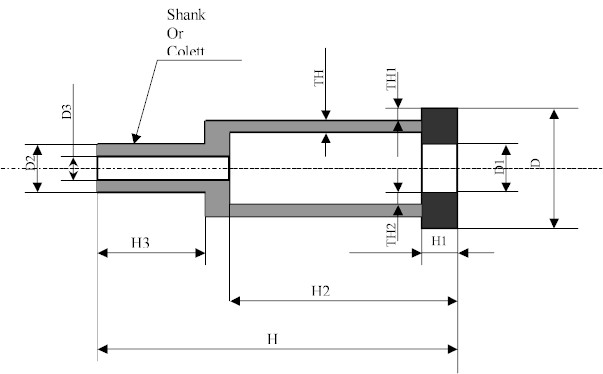
| TOLERANCES: | HEIGHTS: |
| Outside Diameter (D): + / – 0.060mm Inside Diameter (D1): + / – 0.060mm | H = Total Drill Length: 3.375″ (85.72mm) accept for 1/8″ (3.2mm) & 3/16″ (4.76mm) |
| Inside Diameter (D1): + / – 0.060mm | H1= Diamond Depth (diamond height): .20”(5.0mm) |
| Drill Run out: 0.04mm (.00157″) | H2 = Drilling Depth (how deep you can drill): 2.15″ (54.61mm) accept for 1/8″, 3/16″ TH = Drill Tube Wall Thickness: 0.55-0.65mm (.021″ to .0255″) accept 1/8″, 3/16″ |
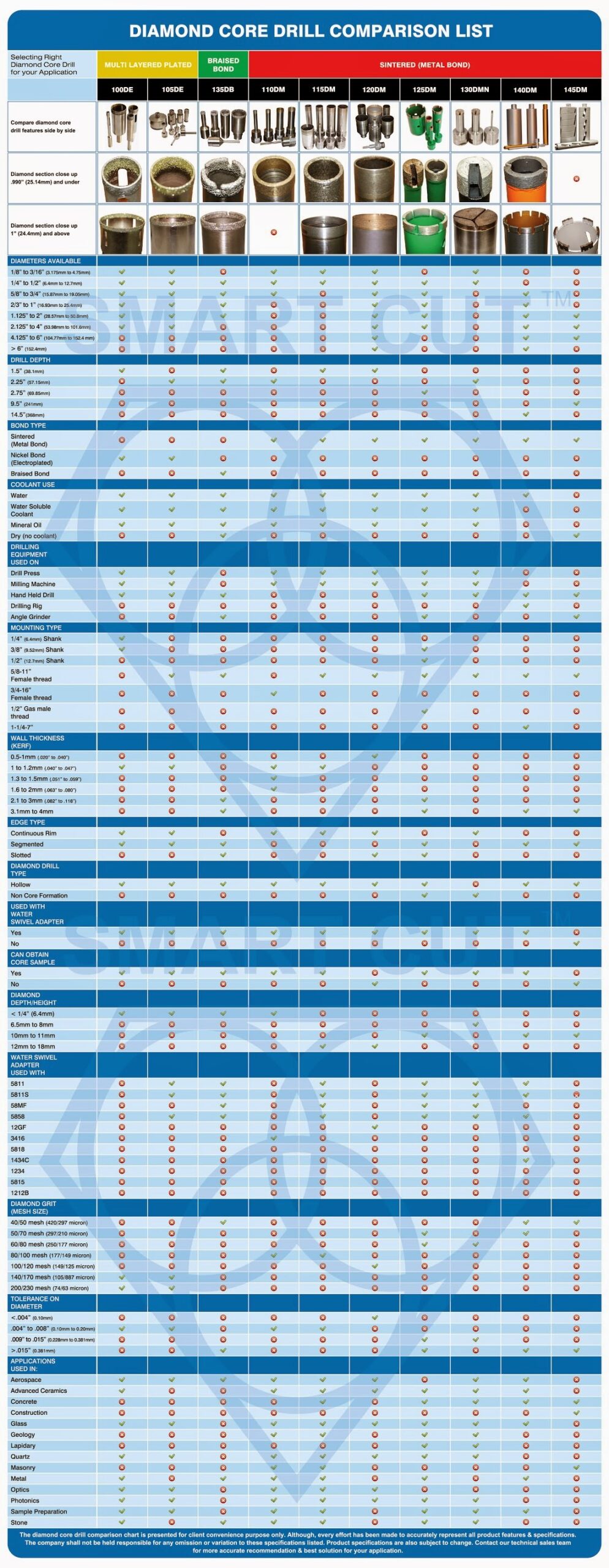
FREQUENTLY ASKED QUESTIONS
The drills come with a 5/8″-11″ female thread.
The SMART CUT™ technology offers advantages like reduced material loss, minimal deformation, lower heat generation, faster drilling speeds, less chipping, and improved surface finish quality.
The drills can last for over 350+ holes, but the exact life will vary based on usage and material being drilled.
They can be used on drill presses, handheld drills, angle grinders, CNC/milling machines, and other applicable equipment.
Shank adapters have a 5/8-11″ male thread and can be threaded into the diamond drill’s 5/8-11″ female thread. These adapters allow the drill to fit into the chuck of any drilling equipment.
Yes, shank adapters can be ordered individually.
Water swivel adapters, especially when used with diamond core drills, enhance drill life, reduce material stress, ensure consistent performance, improve drill concentricity, and ultimately save time and money.
they produce less chipping and better surface finish and often can provide faster and freer cutting speed as the diamonds have high exposure specially for softer materials such as glass, crystals, some composites, particularly thin wall tubing and other fragile materials. These tend to provide less heat generation and stress to the material when existing the hole.
It’s highly recommended to use the drills with the suggested water swivel adapters and ensure consistent cooling while drilling.
Precise tolerances ensure accurate and consistent drilling. The listed tolerances for these drills indicate their high precision and quality.
The shank adapter you need is based on the equipment you’re using. The drills can be used with 3/8″, 1/2″, and 1/2″ Gas Shank Adapters. Check the specifications of your equipment’s chuck to determine the correct size.
Yes, while drills may be used without shank adapters or water swivels, it’s recommended to use them with the suggested water swivel adapters to ensure consistent cooling and enhanced drill life.
Store them in a dry, cool place away from direct sunlight. Ensure they are kept in their original packaging or a protective casing to prevent any accidental damage or contamination.
SMART CUT™ technology is designed for superior performance, providing faster drilling speeds, reduced material loss, minimized deformation, and an overall smoother and more consistent drilling experience.
Clean the drills using warm water and a mild detergent. Ensure they are dried thoroughly before storage to prevent rust or corrosion. Avoid using harsh chemicals that might damage the electroplated diamond layer.
The diamond depth indicates the thickness of the diamond layer on the drill. A greater diamond depth often translates to a longer drill lifespan and consistent performance over extended usage.
Electroplated diamond core drills be dressed. Please note that since they just have few layers of diamonds its not recommended to frequently dress them.
Drill life can vary based on several factors, including the hardness and type of material being drilled, the drilling speed, the amount of pressure applied, and the use of adequate coolant or lubrication.
For bulk purchase inquiries or special pricing, contact UKAM Industrial’s sales department directly.
While the product details provide a general speed (1 to 2 inches per minute), the optimal speed may vary based on material hardness and drill size. Always start at a slower speed and adjust as needed for best results.
Ensure a consistent water flow through the swivel adapter to prevent overheating. Regularly check for any signs of wear or leakage and replace adapters as needed.
Store the drills in a cool, dry place, preferably in their original packaging or a protective case. This ensures that they remain free from dust, moisture, and potential damage.
Regular cleaning after use and ensuring the drills are dried properly are essential maintenance steps. Avoid dropping or subjecting them to extreme temperatures.
Using a water swivel adapter allows for the efficient flow of coolant through the center of the drill, preventing overheating, reducing material stress and deformation, and increasing the drill’s life.
While these drills are designed to work with all popular drilling equipment, it’s advisable to check compatibility details, especially when using specialized or unconventional equipment.
Familiarity with the drilling equipment and basic drilling practices are essential. However, for specialized applications or unfamiliar materials, consulting the product manual or seeking expert guidance is recommended.
The diamonds are electroplated onto the core drills, ensuring a strong bond. Under normal usage conditions and with proper care, the risk of diamonds detaching is minimal.
Tolerances indicate the allowable variation in the measurements. This ensures that the drills are consistent in size and perform as expected.
Always wear safety goggles and gloves, ensure the workpiece is securely clamped, and avoid applying excessive pressure. Ensure the drilling equipment is in good condition and free from defects.
It’s highly recommended to use these diamond drills with a coolant, preferably water, to prevent overheating, reduce friction, and achieve optimal performance.
The multi-layered electroplated diamond core drills provide a longer drilling life, smoother surface finish, faster drilling action, and more consistent performance compared to single-layered or non-electroplated drills.
Signs of wear such as reduced drilling efficiency, excessive vibrations, or visible diamond layer depletion indicate it might be time for a replacement.
The core of these drills is made of a durable metallic alloy, optimized for strength and compatibility with the electroplated diamond layers.
Why is there a difference in the total drill length and drilling depth for the 1/8″ and 3/16″ sizes?
Specific sizes might have slight design modifications to optimize performance for particular applications or to maintain structural integrity.
SMART CUT™ technology ensures an even distribution of diamonds, allowing for faster drilling speeds, reduced chipping, and an overall improved drilling experience.
For bulk purchase inquiries, customers are advised to contact UKAM Industrial directly to discuss potential discounts or offers.
Warranty details should be specified in the product’s terms and conditions. For specific warranty queries, it’s best to contact UKAM Industrial directly.
While these drills are optimized for the mentioned applications, they might be suitable for other similar materials. However, testing on a sample or consulting with UKAM Industrial is recommended before using them on unlisted materials.
The Mohs Scale of Hardness gives a comparative measure of mineral hardness. The mentioned range (4 to 7) indicates the optimal hardness of materials these drills are designed to work on.
The choice of shank adapter depends on the compatibility with your drilling equipment chuck. Ensure you select the adapter that fits securely into your equipment.
The drills are designed for durability and resistance to typical conditions. However, it’s crucial to store them properly and ensure they are dried after use to prevent any rust or corrosion.
Yes, UKAM Industrial can cater to specific requirements. For custom sizes or specifications, it’s best to reach out to them directly with your needs.
These drills are optimized for materials with a hardness of 4 to 7 on the Mohs Scale. Using them on harder materials may reduce their efficiency and lifespan.
Yes, UKAM Industrial provides detailed instructions and guidelines to ensure safe and optimal use of their products.
Three layers of diamonds provide a longer drilling life, smoother surface finish, and a more consistent performance compared to conventional single-layered drills.
The recommended water swivel adapters allow high-pressure coolant to run through the center of the drill, preventing overheating, reducing material stress, and increasing the lifespan of the drill.
For details on international shipping and associated costs, it’s best to contact UKAM Industrial directly.
Always wear safety goggles and gloves, ensure your workspace is well-ventilated, use the recommended water swivel adapters, and follow the provided guidelines.
It’s advised to clean the drill after each use to remove any material residues and maintain its efficiency.
UKAM Industrial provides video explanations for their products. Customers can access these videos on their website or request them directly.
These drills are versatile and can be used with drill presses, handheld drills, CNC/Milling Machines, and more.
The shank adapter is designed to fit the drill’s thread size and the drilling equipment’s chuck. If you have multiple drills with the same thread size, one shank adapter can be used for them.
Using the drill without coolant or water can lead to excessive heat generation, potential damage to the material, and a reduced lifespan of the drill.
While the product details provide a general speed (1 to 2 inches per minute), the optimal speed may vary based on material hardness and drill size. Always start at a slower speed and adjust as needed for best results.
Ensure a consistent water flow through the swivel adapter to prevent overheating. Regularly check for any signs of wear or leakage and replace adapters as needed.
Store the drills in a cool, dry place, preferably in their original packaging or a protective case. This ensures that they remain free from dust, moisture, and potential damage.
Regular cleaning after use and ensuring the drills are dried properly are essential maintenance steps. Avoid dropping or subjecting them to extreme temperatures.
Using a water swivel adapter allows for the efficient flow of coolant through the center of the drill, preventing overheating, reducing material stress and deformation, and increasing the drill’s life.
While these drills are designed to work with all popular drilling equipment
Tolerances indicate the allowable variation in the measurements. This ensures that the drills are consistent in size and perform as expected.
Always wear safety goggles and gloves, ensure the workpiece is securely clamped, and avoid applying excessive pressure. Ensure the drilling equipment is in good condition and free from defects.
It’s highly recommended to use these diamond drills with a coolant, preferably water, to prevent overheating, reduce friction, and achieve optimal performance.
The multi-layered electroplated diamond core drills provide a longer drilling life, smoother surface finish, faster drilling action, and more consistent performance compared to single-layered or non-electroplated drills.
Signs of wear such as reduced drilling efficiency, excessive vibrations, or visible diamond layer depletion indicate it might be time for a replacement.
The core of these drills is made of a durable metallic alloy, optimized for strength and compatibility with the electroplated diamond layers.
SMART CUT™ technology ensures an even distribution of diamonds, allowing for faster drilling speeds, reduced chipping, and an overall improved drilling experience.
For bulk purchase inquiries, customers are advised to contact UKAM Industrial directly to discuss potential discounts or offers.
While these drills are optimized for the mentioned applications, they might be suitable for other similar materials. However, testing on a sample or consulting with UKAM Industrial is recommended before using them on unlisted materials.
The Mohs Scale of Hardness gives a comparative measure of mineral hardness. The mentioned range (4 to 7) indicates the optimal hardness of materials these drills are designed to work on.
The choice of shank adapter depends on the compatibility with your drilling equipment chuck. Ensure you select the adapter that fits securely into your equipment.
The drills are designed for durability and resistance to typical conditions. However, it’s crucial to store them properly and ensure they are dried after use to prevent any rust or corrosion.
YES we can produce almost any diameter, inside diameter, drill depth, wall thickness, grit size, etc
These drills are optimized for materials with a hardness of 4 to 7 on the Mohs Scale. Using them on harder materials may reduce their efficiency and lifespan.
Three layers of diamonds provide a longer drilling life, smoother surface finish, and a more consistent performance compared to conventional single-layered drills.
The recommended water swivel adapters allow high-pressure coolant to run through the center of the drill, preventing overheating, reducing material stress, and increasing the lifespan of the drill.
These drills are versatile and can be used with drill presses, handheld drills, CNC/Milling Machines, and more.
The shank adapter is designed to fit the drill’s thread size and the drilling equipment’s chuck. If you have multiple drills with the same thread size, one shank adapter can be used for them.
Using the drill without coolant or water can lead to excessive heat generation, potential damage to the material, and a reduced lifespan of the drill.
Yes, these diamond core drills can be used to drill either partially or completely through materials. Users should ensure accurate depth measurements and employ depth stops or other mechanisms to achieve the desired depth.
To ensure consistent depth when drilling, it’s recommended to use a depth stop on your drilling equipment or set up a visual marker. Regularly checking and calibrating your equipment can also help maintain precision.
While the multi-layered electroplated diamond core drills are designed to produce less chipping and offer a smoother surface finish, the risk of chipping or cracking always exists, especially with fragile materials. Using the recommended water swivel adapter and ensuring proper cooling can minimize this risk.
The drilling speed will depend on the material and desired outcome. However, when drilling partially, it might be beneficial to drill at a controlled speed to prevent overshooting the intended depth.
Drilling partially might wear out the top portion of the drill’s diamond layer more quickly since only that section is engaged in the drilling process. It’s essential to monitor the wear and rotate or replace the drill as needed.
Several factors can affect the surface finish and chipping:
Material Hardness: Softer materials might get a smoother finish, while harder materials might require more careful drilling to avoid chipping.
Drilling Speed: Drilling too fast can increase the risk of chipping, especially in brittle materials.
Coolant Use: It’s highly recommended to use these drills with a water swivel adapter to provide a consistent coolant flow, reducing heat and minimizing material deformation.
Equipment Stability: Using stable and reliable equipment ensures consistent pressure and speed, leading to a better finish.
Drill Wear: A worn-out drill can result in rougher finishes and increased chipping. Regularly inspecting and replacing drills as necessary is essential.
While these drills are designed to offer an excellent surface finish, post-drilling processes like polishing or honing can further improve the surface, especially for aesthetic or precision applications.
Materials with a crystalline structure or those that are inherently brittle, like certain types of glass or quartz, might be more susceptible to chipping. However, using the correct drilling techniques, speeds, and ensuring proper coolant application can mitigate these risks.
The recommended drilling speed for these diamond core drills is 1 to 2 inches per minute. However, the feed rate, which is the rate at which the drill advances into the material, can vary depending on the specific material being drilled and the equipment being used. Here are some general guidelines:
Soft Materials (e.g., composites, soft stones): Start with a faster feed rate within the 1.5 to 2 inches per minute range, but monitor closely to ensure no excessive heat or chipping.
Medium Hardness Materials (e.g., marble, onyx): Aim for a moderate feed rate, typically around 1 to 1.5 inches per minute.
Hard and Brittle Materials (e.g., glass, quartz, optical materials): It’s advisable to start with a slower feed rate, possibly below 1 inch per minute, and adjust based on performance and material response.
While the above guidelines are a good starting point, the best approach is to run a few test drills on sample materials. Start at a conservative feed rate and incrementally increase until you achieve a balance between speed, surface finish quality, and minimal chipping.
Yes, overly aggressive feed rates can lead to faster wear and reduced drill lifespan, especially on harder materials. Conversely, too slow of a feed rate can result in inefficient drilling and excessive heat generation, which could also negatively impact the drill’s lifespan and performance.
Utilizing coolant, especially with the recommended water swivel adapters, allows for potentially faster feed rates since it reduces heat and minimizes the risk of material deformation and chipping. However, always monitor the drilling process closely to ensure optimal results.
The drill run out for these diamond core drills is specified at 0.04mm, which is equivalent to 0.00157 inches.
Run out refers to the extent to which a drill or tool deviates from its intended path or center of rotation. A low run out ensures that the drill rotates about its central axis without wobbling, leading to more precise drilling, reduced wear on the tool, a smoother surface finish, and minimized material deformation.
These Thin Wall Multi-Layered Electroplated Diamond Core Drills have a precision-crafted design that ensures a minimal run out. A run out of 0.04mm is quite low, making these drills suitable for precise and accurate drilling applications, especially when compared to some conventional drills that may have higher run out values.
Yes, the drill’s run out can be influenced by factors other than the drill itself. The accuracy and condition of the drilling equipment, the way the drill is mounted or chucked, and even the alignment and condition of the equipment’s spindle can impact the effective run out. It’s essential to ensure that all components of the drilling setup are in good condition and properly aligned to achieve the best results.
Ensuring the drill is correctly chucked or mounted, regularly checking and maintaining your equipment, and using accessories like the recommended shank adapters and water swivel adapters can help minimize run out and improve overall drilling accuracy and performance.
Yes, these diamond core drills are designed to extract core samples from various materials. The core sample will be the material inside the diameter of the drill.
These drills are optimized for materials rated 4 to 7 on Moh’s Scale of Hardness, including Glass, Quartz, Yag, Optical Materials, Marble, Onyx, soft to medium-hard natural and semi-precious stones, Composites, soft to medium-hard Technical Ceramics, and many other materials.
With the SMART CUT™ technology, these drills aim to provide chip-free performance. This means that the core samples extracted will have minimal chipping, offering a cleaner and more intact specimen.
Ensure that the material is securely clamped and stabilized to prevent any movement during the drilling process. Using the recommended water swivel adapters can help to cool the drilling site, minimize material stress, and improve the quality of the core sample. Also, make sure to feed the drill at the appropriate rate for the material to avoid undue stress or breakage.
After drilling, the core sample will typically remain inside the drill bit. To remove it, you can gently tap the drill bit against a soft surface or use a thin rod or tool to push the sample out from the drill’s opposite end. Ensure you handle the sample with care to prevent any damage.
The tolerance for the Outside Diameter (D) is ± 0.060mm. Similarly, the tolerance for the Inside Diameter (D1) is also ± 0.060mm.
The stated diameter tolerances ensure that the drills have a consistent size, which is vital for precision work. This consistent sizing ensures that holes drilled will match the intended dimensions closely, leading to accurate and repeatable results.
These diamond core drills, with their multi-layered design and precise tolerances, are made to offer higher consistency and performance compared to conventional single-layered electroplated drills. However, specific comparisons would depend on the manufacturer and quality of the conventional drill in question.
Given the tight tolerances, the drilled holes will be quite precise. If you’re using the drills to prepare holes for specific fittings or to extract samples, these tolerances ensure a consistent and accurate result, making it easier to predict and ensure proper fit or sample size.
Yes, UKAM Industrial offers customization. If you have specific requirements, it’s recommended to contact them directly to discuss the possibility of custom drills with tighter tolerances or other bespoke features.
No, diamond core drills are not typically recommended for metals. Metals tend to generate a lot of heat and can wear out the diamond grit quickly. For metals, carbide or other types of metal drills are more appropriate.
The drills are optimized for materials between 4 to 7 on Moh’s Scale. Diamond is a 10 on the scale, and sapphire is 9. While these drills might work to some extent on sapphire, they are not optimized for it, and their lifespan may be reduced. They are not recommended for use on diamonds.
These core drills are not designed for abrasive materials and would wear out super quick. For this application you need to use sintered (metal bond).
2.15”
Maximum drill depth recommendation is based on material hardness. For drilling very hard materials that are harder then 8 on mohes scale we do not recommend going beyond ½” (12.7mm) drilling depth. For deeper drilling we would recommend using sintered (metal bond) diamond core drills for these applications.
Thin wall diamond drills offer faster drilling speeds, reduced waste, and less material removal compared to their thicker counterparts.
No, thin wall diamond drills produce less friction during the drilling process, leading to reduced heat production.
Yes, thin wall drills typically produce more refined and intact core samples due to reduced stress and disturbance to the surrounding material.
Thin wall drills often result in a smoother surface finish inside the drilled hole, minimizing the need for additional post-drilling finishing.
Thin wall diamond drills typically result in less chipping around the entrance and exit of the hole, especially beneficial for fragile materials.
No, thinner walls mean reduced drilling pressure, extending the drill’s life and minimizing material damage.
Their thin profile allows coolants to more effectively reach the cutting surface, ensuring optimal cooling and reduced drill wear.
While the initial cost might be similar or slightly higher, the benefits like increased drilling speed, reduced waste, and longer drill life can make them more cost-effective for certain applications.
While they offer numerous advantages, their thin profile might make them more fragile for some tough materials or situations with potential lateral stresses. Always assess your specific needs when choosing a drill.
INDUSTRIES USED IN
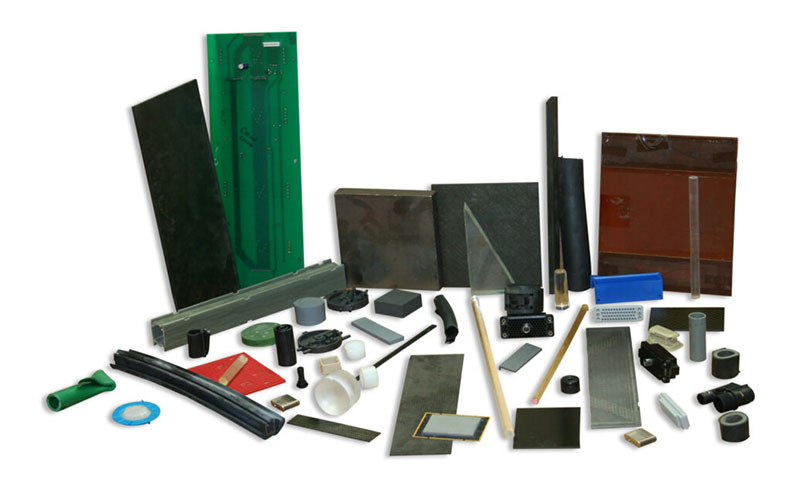
Composites

Gem Stones

Sapphire
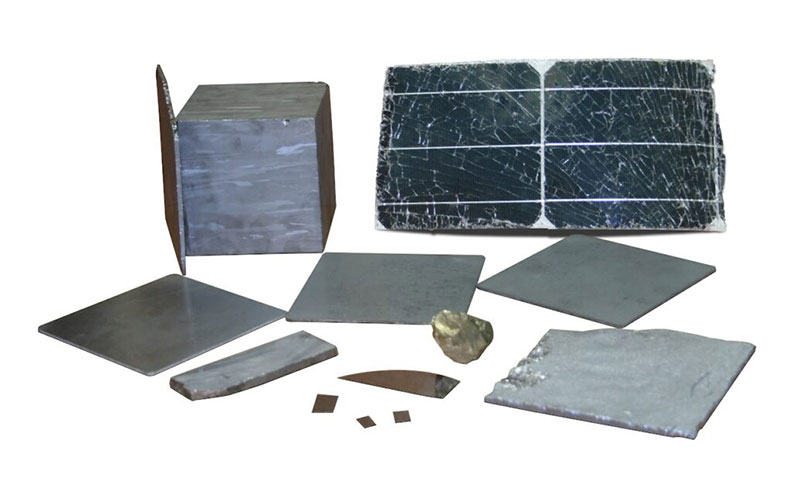
Repetation

Glass Materials
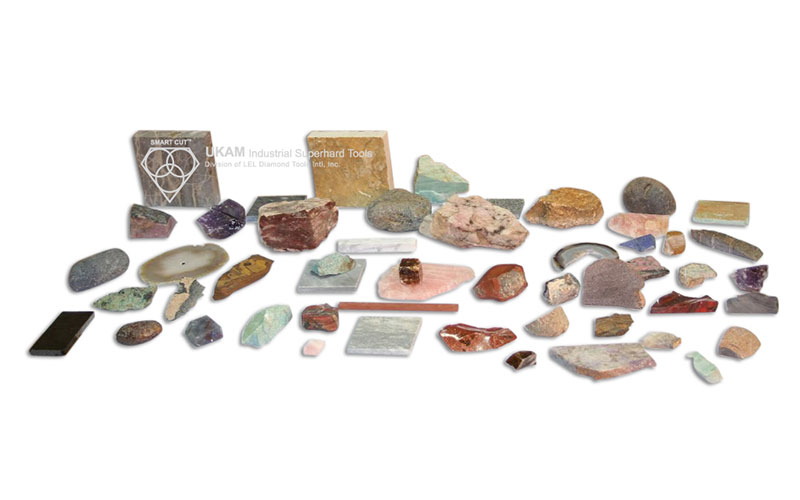
Lapidary

Stone
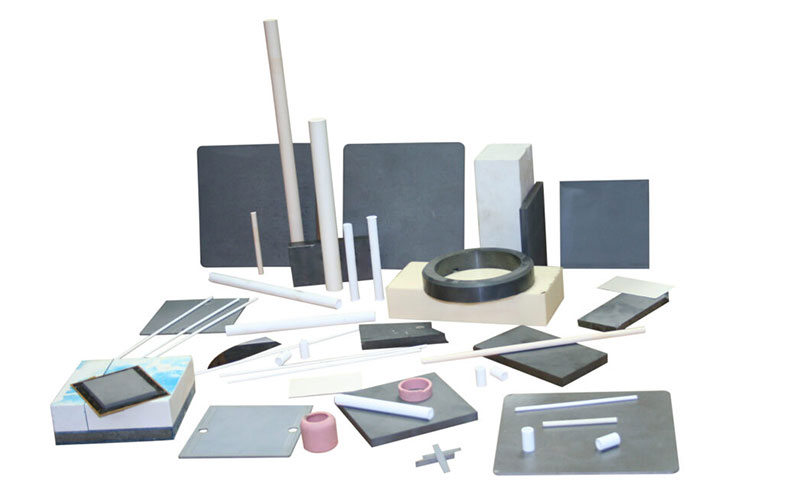
Advanced Ceramics

Photonics
ACCESSORIES
Showing 1 – -1 of 13 results Showing all 13 results Showing the single result No results found
Sort by Price low to high
Filters Sort results
Reset Apply
Image | Name | COMPATIBILITY WITH DRILL SERIES | Price | Quantity | Add to cart |
|---|---|---|---|---|---|
Recommended for use in Diamond Tools 150 Grit Size (mesh… | $15.39 | Max: Min: 1 Step: 1 | |||
Recommended for coarser grits found in segment wheels, core drills… | $15.99 | Max: Min: 1 Step: 1 | |||
5/8″-11″ thread. Fits into drill press chuck. Shank adapter threads… | $22.46 | Max: Min: 1 Step: 1 | |||
5/8″-11″ thread. Fits into drill press chuck. Shank adapter threads… | $26.72 | Max: Min: 1 Step: 1 | |||
SMART CUT® General Materials Formula Synthetic Water Soluble Coolant | $34.81 | Max: Min: 1 Step: 1 | |||
Recommended for use in Diamond Tools 150 Grit Size (mesh… | $39.47 | Max: Min: 1 Step: 1 | |||
Recommended for coarser grits found in segment wheels, core drills… | $39.47 | Max: Min: 1 Step: 1 | |||
SMART CUT® General Materials Formula Synthetic Water Soluble Coolant | $99.81 | Max: Min: 1 Step: 1 | |||
105DE, 135DB, 115DM, 125DM, 130DMN, 140DM (up to 1-5/8″ OD) | $154.87 | Max: Min: 1 Step: 1 | |||
105DE, 135DB, 115DM, 125DM, 130DMN, 140DM (up to 1-5/8″ OD) | $154.87 | Max: Min: 1 Step: 1 | |||
105DE, 135DB, 115DM, 125DM, 130DMN, 140DM (up to 1-5/8″ OD) | $235.00 | Max: Min: 1 Step: 1 | |||
SMART CUT® General Materials Formula Synthetic Water Soluble Coolant | $317.41 | Max: Min: 1 Step: 1 | |||
SMART CUT® General Materials Formula Synthetic Water Soluble Coolant | $1,745.00 | Max: Min: 1 Step: 1 |
USAGE RECOMMENDATION
02
Jun
Learn important diamond drill methodology. understand diamond drill specifications and their differences Selecting the right Diamond Drills/Bits for your application is key to obtaining desired diamond drilling results. Using the Right Diamond Drill will...
02
Jun
How to Properly Use Precision Diamond Drills
Step by step guide on how to properly use and care for your diamond drills. Selecting the right diamond drill/diamond drill bit parameters, often involves a trial and error process. Many which can be avoided...
02
Jun
Diamond Drills Guide
Diamond are used across large variety of industries and applications. This guide explores the wide range of diamond drill types, including hollow core drills designed for removing a cylindrical core, non-core formation drills that grind...
02
Jun
Diamond Tools Guide – Selecting Right Drills & Tools for your application
These tools are used for many different industries grinding and shaping material into different forms, expanding exiting inside diameters, grinding, finishing and polishing existing material. Grinding different angles and radius, creating cavities of various forms,...
02
Jun
Optimizing your Diamond Drilling Operation
There are numerous factors that influence the performance of diamond drills. Understanding these factors helps users select the appropriate diamond drill specifications for their specific applications, optimizing drilling operations to achieve maximum efficiency....
02
Jun
Micro Drilling Guide
Share this Article with Friend or Colleague
In order for you to get the most out of your diamond micro drill or carbide / high speed steel micro drill, we strongly urge you to read...
03
May
Diamond Core Drill & Drill Trouble Shooting Guide
Learn the most common problems most people have in using diamond drills. How to resolve them and avoid them in first place https://ukam.com/wp-content/uploads/2024/07/diamond-drill-troublehsooting-guide.mp4
Troubleshooting Drilling Problems
Having issues with your diamond drilling operation? This Illustrated...
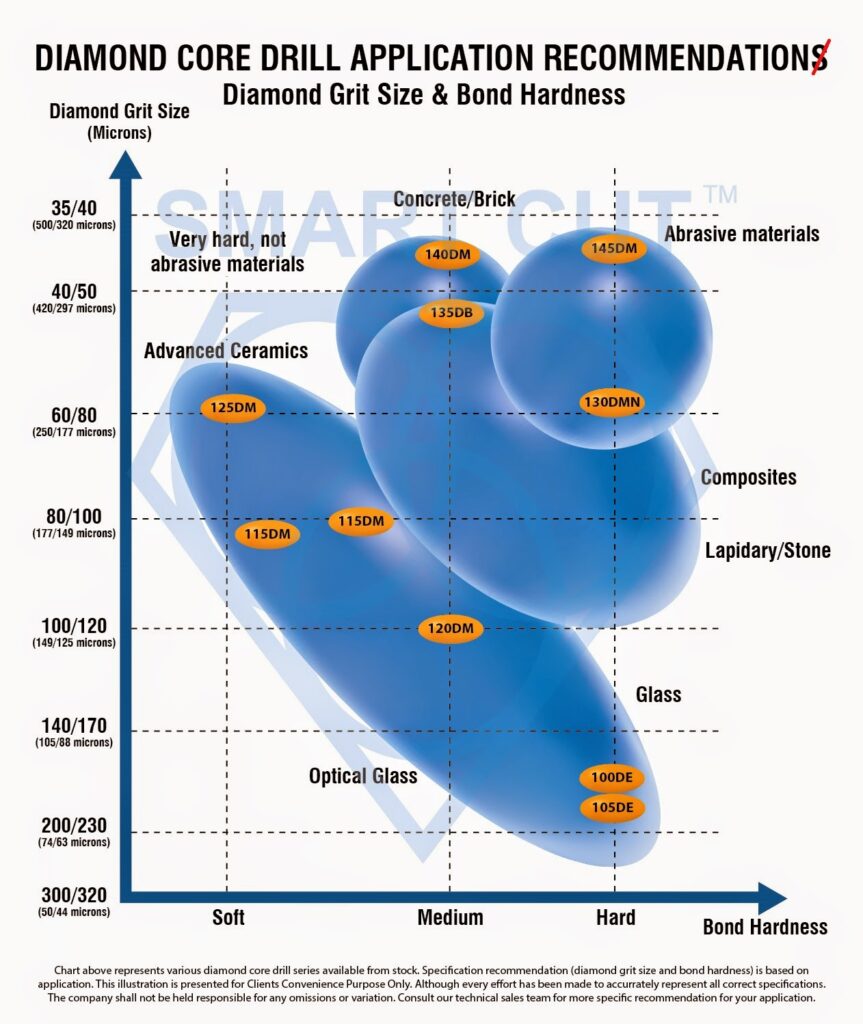
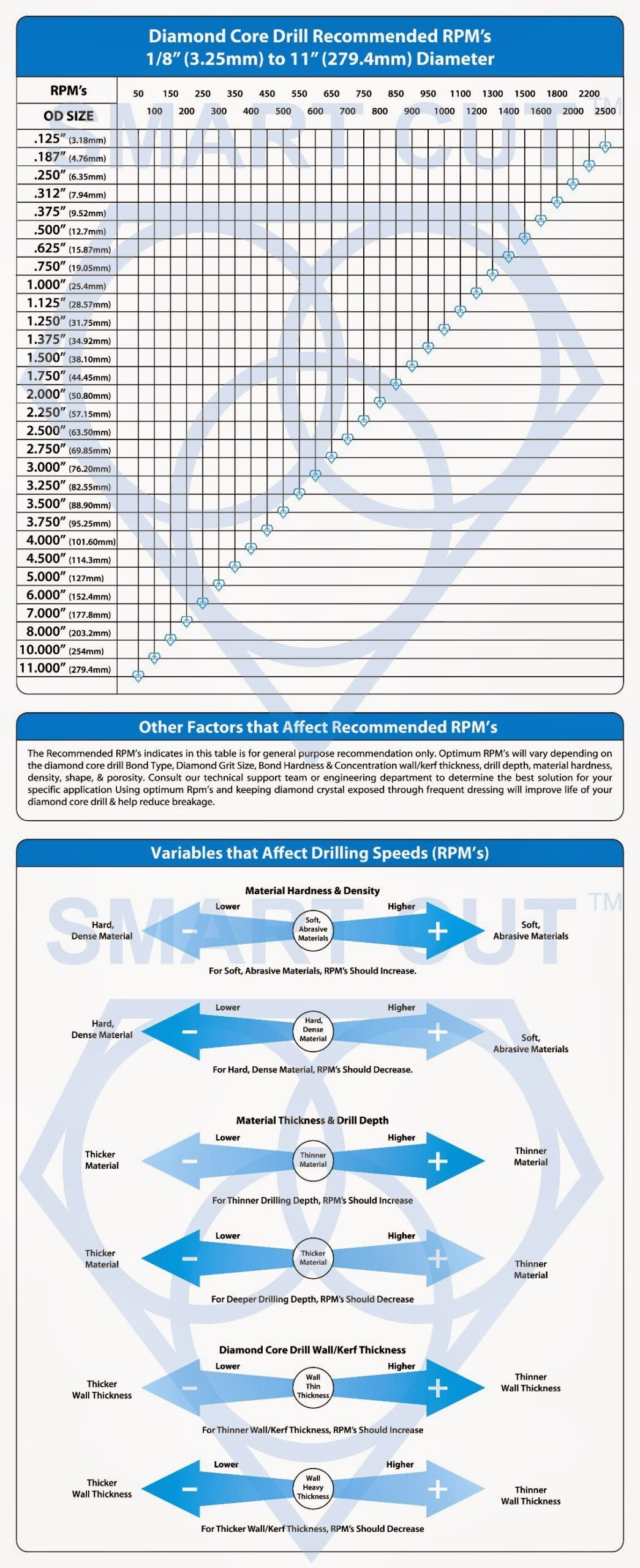

Benefits
-
 Less loss of material
Less loss of material
-
 Minimum material deformation
Minimum material deformation
-
 Less heat generation
Less heat generation
-
 Faster drilling speed
Faster drilling speed
-
 Less chipping
Less chipping
-
 Better surface finish quality
Better surface finish quality
-
 High Diamond Concentration
High Diamond Concentration
-
 Smooth Surface Finish Quality
Smooth Surface Finish Quality
-
 Fast Drilling & Consistent Performance
Fast Drilling & Consistent Performance
-
 Superior Quality & Consistency
Superior Quality & Consistency
-
 Preserves True Material Micro Structure
Preserves True Material Micro Structure
-
 Long Life in Industry
Long Life in Industry
Features
-
 Works with all popular Drilling Equipment
Works with all popular Drilling Equipment
-
 LONG LASTING
LONG LASTING
-
 FAST DRILLING. Drilling Speed: 1 to 2 inches per minute
FAST DRILLING. Drilling Speed: 1 to 2 inches per minute
-
 SMART CUT technology
SMART CUT technology
-
 Diamond depth/height: 10mm
Diamond depth/height: 10mm
-
 Precision Tolerance
Precision Tolerance
-
 Thin wall thickness
Thin wall thickness
-
 With 5/8-11" female thread
With 5/8-11" female thread
-
 Steel Body Made from Single Piece of Steel
Steel Body Made from Single Piece of Steel
Showing 1 – 17 of 17 results Showing all 17 results Showing the single result No results found
Sort by Price low to high
Filters Sort results
Reset Apply
Image | Old Item | New Item | OUTSIDE DIAMETER (D) | Inside Diameter (D1) | Diamond Depth (H1) | Wall Thickness (TH) | Drilling Depth (H2) | Price | Quantity | Add to cart |
|---|---|---|---|---|---|---|---|---|---|---|
6000108SG | 1/8"(3.18mm) | 1.60mm (.063") | .276" (7mm) | .040" (1.0mm) | 1.5" (38.10mm) | $106.56 | Max: Min: 1 Step: 1 | |||
6000104SG | 1/4" (6.35mm) | 4.35mm (.171") | 4.35mm (.171") | 040" (1.0mm) | 1.5" (38.10mm) | $109.37 | Max: Min: 1 Step: 1 | |||
6000516SG | 5/16" (7.93mm) | .394" (10mm) | .040" (1.0mm) | 1.5" (38.10mm) | $110.50 | Max: Min: 1 Step: 1 | ||||
6000308SG | 3/8" (9.52mm) | 7.53mm (.296") | .394" (10mm) | .040" (1.0mm) | 1.5" (38.10mm) | $112.98 | Max: Min: 1 Step: 1 | |||
6000716SG | 7/16” (11.11mm) | .276" (7mm) | .040" (1.0mm) | 1.5" (38.10mm) | $115.22 | Max: Min: 1 Step: 1 | ||||
6000102SG | 1/2" (12.7mm) | 1/2" (12.7mm) | .394" (10mm) | .040" (1.0mm) | 1.5" (38.10mm) | $117.75 | Max: Min: 1 Step: 1 | |||
6000508SG | 5/8" (15.87mm) | 5/8" (15.87mm) | .394" (10mm) | .040" (1.0mm) | 1.5" (38.10mm) | $121.31 | Max: Min: 1 Step: 1 | |||
6000304SG | 3/4" (19.05mm) | 17.05mm (.671") | .276" (7mm) | .040" (1.0mm) | 1.5" (38.10mm) | $133.77 | Max: Min: 1 Step: 1 | |||
6000708SG | 7/8" (22.22mm) | 20.23mm (.796") | .394" (10mm) | .040" (1.0mm) | 1.5" (38.10mm) | $142.54 | Max: Min: 1 Step: 1 | |||
6010000SG | 1-3/16" (30.15mm) | 28.15mm (1.108") | .394" (10mm) | .040" (1.0mm) | 1.5" (38.10mm) | $144.72 | Max: Min: 1 Step: 1 | |||
6010000SG | 1.0" (25.4mm) | 23.4mm (.921") | .394" (10mm) | .040" (1.0mm) | $155.09 | Max: Min: 1 Step: 1 | ||||
6010104SG | 1-1/4" (31.75mm) | 29.75mm (1.171") | .394" (10mm) | .040" (1.0mm) | 1.5" (38.10mm) | $177.54 | Max: Min: 1 Step: 1 | |||
6010308SG | 1-3/8" (34.92mm) | 32.93mm (1.296") | .394" (10mm) | .040" (1.0mm) | 1.5" (38.10mm) | $189.69 | Max: Min: 1 Step: 1 | |||
6010102SG | 1-1/2"(38.10mm) | 36.1mm (1.421") | .394" (10mm) | .040" (1.0mm) | 1.5" (38.10mm) | $202.62 | Max: Min: 1 Step: 1 | |||
6010304SG | 1-3/4" (44.45mm) | 1.671" (42.45mm) | .394" (10mm) | .040" (1.0mm) | 1.5" (38.10mm) | $221.31 | Max: Min: 1 Step: 1 | |||
6020000SG | 2.00" (50.80mm) | 1.921" (48.8mm) | .394" (10mm) | .040" (1.0mm) | 1.5" (38.10mm) | $237.85 | Max: Min: 1 Step: 1 | |||
6020104SG | 2-1/4" (57.15mm) | 2.171" (55.15mm) | .394" (10mm) | .040" (1.0mm) | 1.5" (38.10mm) | $251.24 | Max: Min: 1 Step: 1 |
Other Sizes, Drilling Depths & Specifications are available upon request
About Sintered (Metal Bond)
Sintered (Metal Bond) diamond tools have multiple layers of diamonds impregnated inside the metal matrix. Diamonds are furnaces sintered in a matrix made of iron, cobalt, nickel, bronze, copper, tungsten, alloys of these powders or other metals in various combinations. Metal bonded diamond tools are “impregnated” with diamonds. This means that selected diamonds are mixed and sintered with specific metal alloys to achieve the best cutting performance possible on any materials such as sapphire, advanced ceramics, optics, glass, granite, tile and etc. The metal bond surrounding the diamonds must wear away to continuously keep re-exposing the diamonds for the diamond tool to continue cutting. Sintered (metal bonded) diamond tools are recommended for machining hard materials from 45 to 75 on rockwell scale (5 to 9.5 on mohe’s scale of hardness).
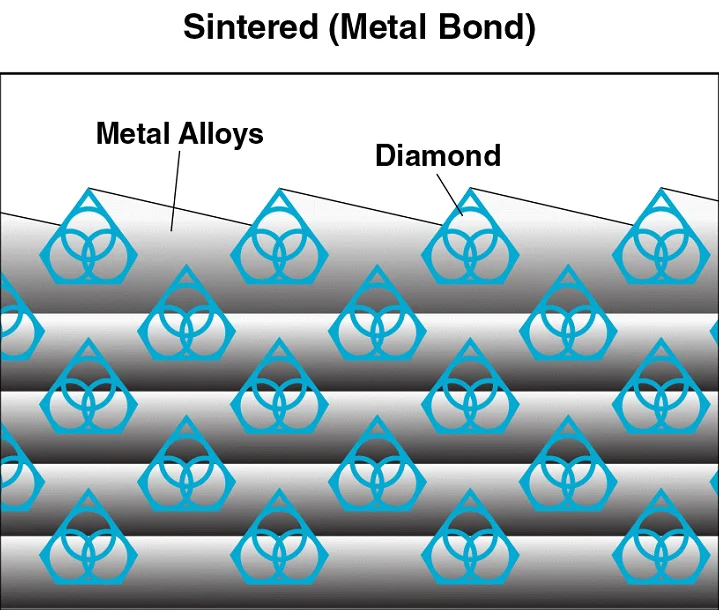
SMART CUT® Difference
How SMART CUT® Thin Wall Diamond Core Drills are Different in comparison to other Diamond Core Drills.

Faster Drilling Action
Diamond & CBN tools made utilizing SMART CUT® technology are much more aggressive than your conventional tools. They can cut faster, while still leaving behind a smooth finish free of material deformation.
Longer Life
In most cases tools manufactured utilizing SMART CUT® technology, will outlast other conventional Sintered (Metal Bond) diamond & CBN drills. SMART CUT® diamond & CBN tools are more sturdy than tools manufactured with conventional technologies. They are capable to retain their form and bond configuration all the way through the tools life.


More Consistent Performance
SMART CUT® Sintered (Metal Bond) Diamond Core Drills have diamonds crystals oriented and evenly positioned inside bond matrix. Unlike Many Other drill Types, they wear evenly, and are known for their consistency. You will get consistent cutting speed, and overall consistent performance, with minimum amount of dressing even on the hardest to cut materials.
Manufactured Using The Highest Quality Raw Materials
Only the highest quality synthetic diamonds and raw materials are used in the manufacturing process. The highest quality standards and product consistency is maintained, using sophisticated inspection and measurement equipment.


Best Performance & Value on the Market
SMART CUT® Sintered (metal bond) Diamond Drills are the best investment you can make! Although they may cost more than Sintered (metal bond)Sintered (metal bond), Diamond Drills. They will more than pay for themselves in terms of overall performance and provide best Return on Investment.
Minimize Chipping & Improve Surface Finish
SMART CUT® Sintered (metal bond) Diamond Drills have diamonds oriented and evenly distributed in a bond matrix. Providing faster, freer cutting action with minimum heat generation. This translates in improved surface finish and minimum chipping.
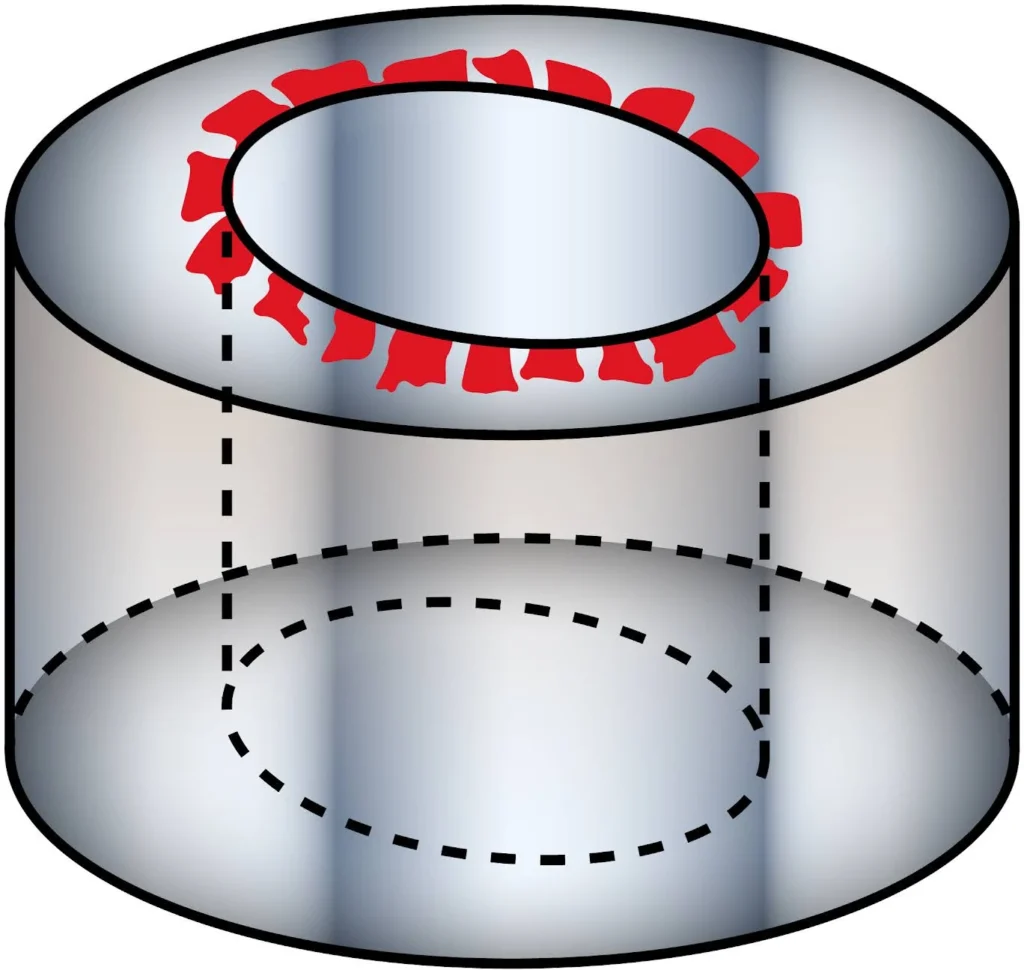
Its what you cant see that makes all the Difference
How SMART CUT® Bond Works?
Step 1
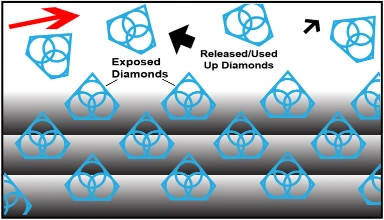
Sharpest And Finest Quality Diamonds
The newly exposed diamonds don’t effect diamonds already working on the material. Unlike many other diamond bonds, diamonds in a SMART CUT® Bond remains sharp and grow sharper with each cut, prolonging product life and consistent performance.
Step 2
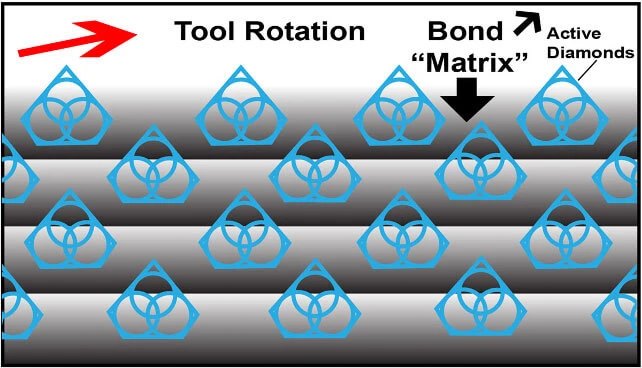
Diamonds or CBN Crystals
Diamonds or CBN Crystals are activated only at the exposed layer. As Bond Matrix layer begin to wear out, diamonds in a new Bond Matrix layer are immediately activated, substituting the already used up diamond layer. The SMART CUT® Diamond Hybrid Bond makes sure every diamond is in the right place and at the right time, working where you need it most.
Step 3
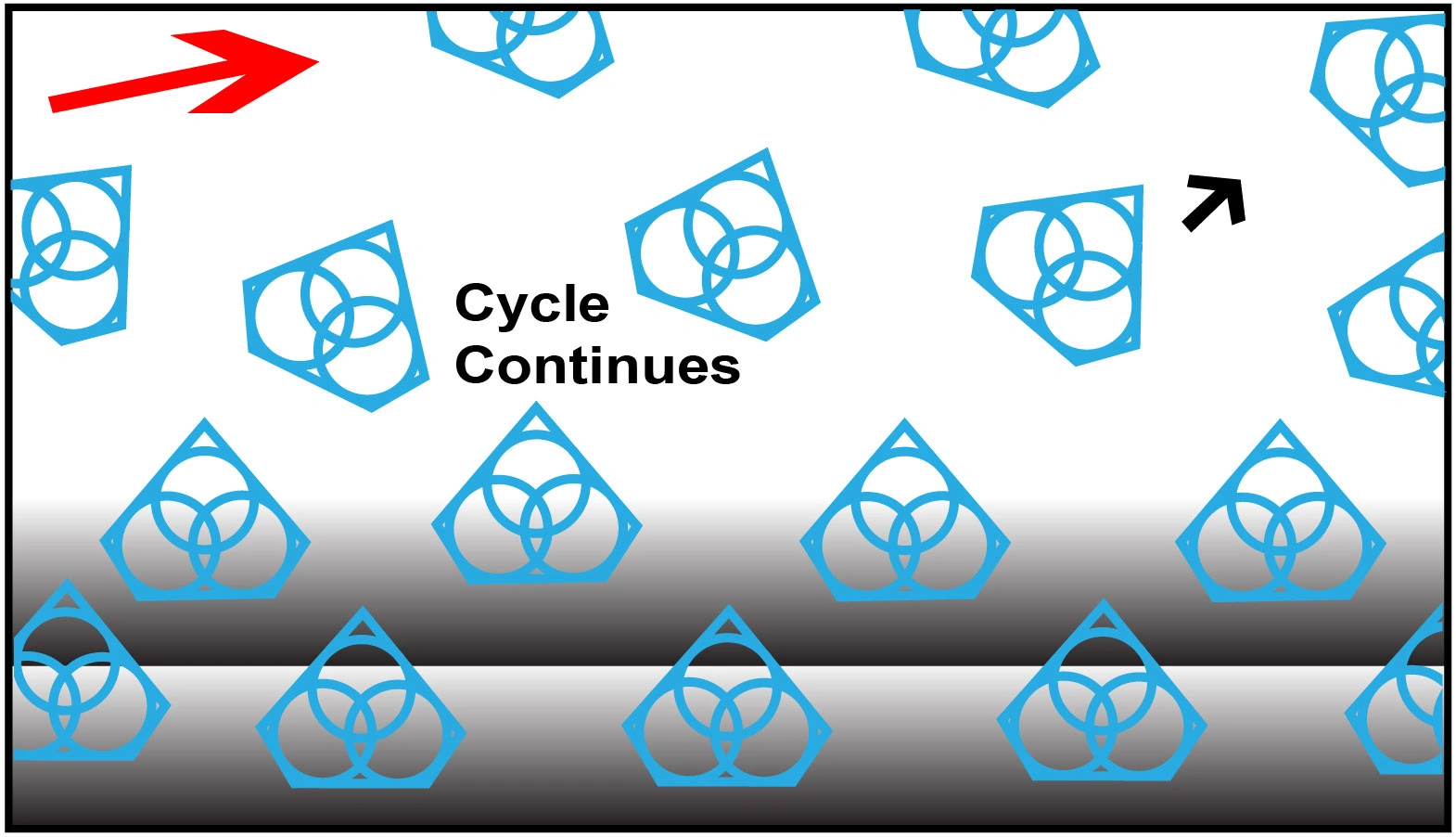
Advanced Formulated Open Diamond Bond Design
This advanced formulated open diamond bond design insures minimal chipping, fast cut, constant speed of cut, minimal cutting noise, and most important of all, consistent performance.
Diamond & Core Drill
Selection Variables

Diamond Concentration
Diamond concentration plays a critical role in determining the life and cutting speed of diamond core drills. Higher concentration offers longer tool life and faster cutting speeds, while lower concentration is typically used for softer materials that require a smoother finish.

Drilling Speed/RPMs
Diamond core drills generally operate at RPMs between 500 and 3,000, depending on the material being drilled. Softer materials allow for higher RPMs, while harder materials require slower speeds for improved cutting efficiency and to avoid damaging the tool or material. Always adjust RPM according to the specific characteristics of the material and drill size.

Diamond Particle/Grit size
The diamond grit size is crucial in determining the cutting speed, surface finish, and precision of diamond core drills. Finer grits provide a smoother surface finish, but may cut more slowly, while coarser grits offer faster cutting speeds but can leave a rougher surface. The choice of grit size depends on the material being drilled and the desired outcome.

Bond Type
The bond type used in diamond core drills influences the drill’s life, durability, and heat resistance. Common bond types for diamond core drills include: Sintered (Metal Bond): Provides a longer tool life and high resistance to wear and heat, making it ideal for drilling hard and abrasive materials. Electroplated: Offers a good combination of speed and precision, typically used for softer materials or applications where a smoother surface finish is needed. Braised Bond: Ideal for applications requiring higher strength, these bonds are used for tougher materials and applications where durability is key. PCD (Polycrystalline Diamond): Used for ultra-hard materials, PCD bond drills offer excellent wear resistance and are ideal for materials like ceramics and composite materials. CVD (Chemical Vapor Deposition) Diamond: Offers exceptional cutting performance, often used in extremely hard materials like high-performance ceramics and advance.

Kerf (Wall) Thickness
The kerf, or wall thickness, of diamond core drills is a key variable in determining the overall performance of the drill. Standard core drills typically feature a kerf thickness ranging from 0.5mm to 3.0mm, with thicker kerfs providing longer tool life and greater stability during drilling. Thinner kerfs allow for faster cutting but may wear out quicker and require more frequent maintenance. The selection of kerf thickness depends on the material being drilled and the precision required.

Feed Rates
The load/feed rate applied to diamond core drills significantly impacts their performance and lifespan. For tougher materials, feed rates typically range between 5-50 mm/min, while softer materials may allow for higher feed rates. Proper feed rate adjustment ensures optimal tool life and drilling speed, while preventing overheating or excessive wear.
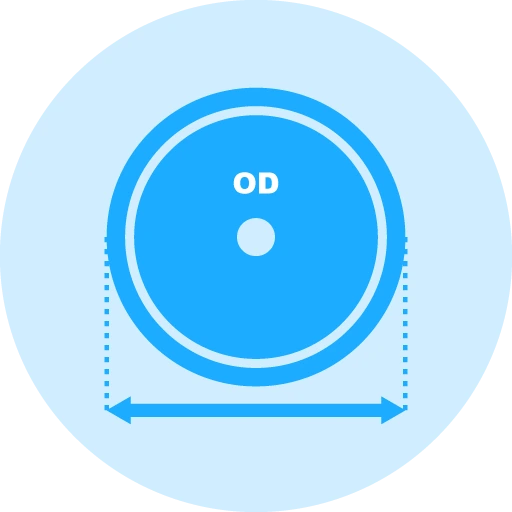
Core Drill Diameter
The diameter of the diamond core drill is directly related to the size of the hole you wish to create. Core drills typically range from small diameters (e.g., 3mm) up to large diameters (e.g., 200mm or more). Larger core drills offer greater drilling capacity, while smaller ones provide more precision for fine hole making.

Drilling depth
The depth of a diamond drill bit, often referred to as drilling depth, working length, or drilling length, is the maximum depth to which the drill can penetrate the workpiece. Drilling depth in diamond core drills depends on the material, drill size, and equipment. Softer materials allow for deeper holes with faster cutting, while harder materials require slower speeds and lower feed rates to prevent overheating. Larger drill diameters may reduce depth due to more material removal per rotation, often requiring multiple passes. Drilling equipment, including motor power and cooling systems, also plays a key role; more powerful motors and efficient cooling allow for deeper drilling.

Bond Hardness
For diamond core drills, the bond hardness plays a crucial role in the performance and longevity of the drill. The bond matrix's ability to retain diamonds directly impacts the drilling efficiency and the tool's lifespan. As the hardness of the bond increases, the retention of diamonds improves, but the trade-off is typically a slower cutting speed. A harder bond matrix provides greater tool life but may lead to reduced cutting efficiency.
There are generally three categories for bond hardness in diamond core drills: Soft, Medium, and Hard. The bond's hardness is selected based on the material being drilled. For example, harder materials such as ceramics or hard metals often require a softer bond to allow the diamonds to be released at a controlled rate, preventing excessive wear and improving cutting performance. Conversely, softer and more brittle materials like concrete or certain composites benefit from a harder bond, which maintains the diamond's retention and extends the drill's lifespan, though it may slow the cutting process.
Using the right bond hardness for the material you're drilling is key to optimizing both cutting speed and tool life. A bond that is too soft will cause diamonds to be released too quickly, resulting in faster wear and a shorter drill life. On the other hand, a bond that is too hard may cause the drill to cut slower and require more frequent dressing to expose new diamonds.

Mounting Type
The mounting type of a diamond core drill refers to how the drill is secured to the drilling machine or equipment. The mounting type plays a significant role in stability, precision, and overall drilling performance. Here are the typical mounting types for diamond core drills:
Unmounted diamond core drills:
Unmounted diamond core drills are specialized tools designed for precision drilling without being pre-mounted to any specific holding mechanism such as a male, female, or straight shank. These drills comprise a steel tube paired with a diamond-embedded segment, offering flexibility in setup and application.
Shaft Mounting:
In this type, the diamond core drill is mounted directly onto a shaft or spindle of the drilling machine. The shaft typically has a locking mechanism (like a set screw or collar) to securely hold the drill in place. This mounting method ensures a stable connection and allows for precise drilling. Shaft mounting is commonly used in machines where the drill operates at high speeds and requires excellent stability.
Threaded Mounting:
Some diamond core drills feature a threaded arbor or core bit holder, allowing the drill to be screwed directly onto the machine's spindle. This method is commonly found in portable core drilling systems or for specific applications like wet drilling, where easy removal and installation are essential.
Choosing the right mounting type for your diamond core drill depends on factors such as the size of the drill, the type of drilling machine, and the specific application requirements. Proper mounting ensures optimal performance, stability, and safety during the drilling process.

Tolerances on Outside or Inside Diameter
The tolerance range for the outside diameter of diamond core drills varies depending on several factors including the drill's diameter, wall thickness, bond type, and the intended application. These tolerances are crucial as they determine the drill's suitability for precision tasks and influence how the drill interacts with the material it cuts.
For small diamond core drills with diameters less than 10mm, the diameter tolerance typically ranges from ±0.02 to ±0.05 mm. This tight tolerance is necessary for applications that require high accuracy, such as in electronics or medical device manufacturing, where small, precise holes are crucial.
Medium-sized drills, ranging from 10mm to 50mm in diameter, usually have a tolerance of ±0.05 to ±0.15 mm. These are commonly used in mechanical applications and construction where slightly larger variances are acceptable.

Run Out
Runout is a critical specification for diamond drills as it directly impacts the quality of the holes drilled and the longevity of the tool itself. The term "runout" refers to the degree to which a tool or workpiece deviates from perfect rotation along its central axis. High runout can lead to uneven wear on the tool, compromised hole quality, and increased heat generation, which are particularly detrimental when drilling hard, brittle materials such as glass, ceramics, and certain stones where precision is critical.
Standard and Precision Diamond Drills - Standard diamond drills typically exhibit runout ranging from 0.0005 inches (0.013mm) to 0.002 inches (0.05mm), which is acceptable for general-purpose drilling where absolute precision is not necessary. However, "standard" runout may vary based on the drill's manufacturer and specific applications. Precision diamond drills, manufactured to higher standards with stricter tolerances, usually have runout less than 0.0002 inches (0.005mm), with ultra-precision drills potentially having even tighter runout specifications.
Related Products
120DE SMART CUT® Series
SMART CUT® 135DB
Braised Bond Diamond Core Drills & Non Core Formation Drills
SMART CUT® 135DB Braised Bond Diamond Core Drills & Non Core Formation Drills with a 5/8-11" Female Thread – the ultimate solution for precision drilling in a wide range of materials. These high-quality core drills can be used both wet or dry and are designed to meet the demanding needs of professionals and DIY enthusiasts alike, offering exceptional performance and durability. SMART CUT® 135DB Braised Bond Diamond Core Drills & Non Core Formation Drills with a 5/8-11″ Female Thread. These diamond drills will drill large variety of materials faster and freer then any type of other diamond drills or other types of non diamond drills available.115DE SMART CUT® Series
Thin Wall Diamond Core Drills, Sintered (Metal Bond)
SMART CUT® 115DE Series Thin Wall Diamond Core Drills from UKAM Industrial Superhard Tools are engineered to provide exceptional performance in the most demanding drilling applications. Designed for tough, abrasive materials such as glass, alumina, quartz, ruby, YAG, silica, silicon, graphite, composites, and other non-metallic ceramics, these drills feature a sintered metal matrix bond that securely holds the diamond, ensuring high durability and consistent performance. With a wall thickness of 1.2mm (.047”), these core drills are optimized for long-lasting performance, faster drilling speeds, and minimal heat generation. Each drill is precision-machined from a single piece of steel using high-precision CNC equipment, ensuring tight tolerances, accuracy, and consistency. The diamond depth (height) of 10mm provides the longest possible tool life and ensures the highest performance standards in the industry. The 5/8-11" female thread ensures compatibility with most standard drilling equipment, offering flexibility and easy integration into existing setups. The medium diamond grit size offers an ideal balance between cutting speed and surface finish quality, making these drills highly versatile for various drilling applications.Item # 3DECD1000 100DE SMART CUT® Series
Thin Wall Diamond Core Drills, Multi Layer Electroplated with straight shank
100DE SMART CUT® Series Thin Wall Multi-Layered Electroplated Diamond Core Drills, Manufactured by UKAM Industrial are Multi Layered. They have 3 layers of diamonds, not just 1 layer of diamonds like conventional electroplated drills. This provides longer drilling life, smoother surface finish, faster and freer drilling action, & more consistent performance.
Recommended for drilling full range of glass, quartz, optical materials, composites, soft to medium hard natural and semi-precious stone, as well as softer Advanced Materials. DIAMOND DRILL LIFE: Up to 350+ holes on many materials. Diamond Drill Life will vary with Material Hardness, Drilling Depth, Coolant Used & Operator Experience Electroplated diamond drills are not recommended for drilling ultra hard materials. Use Sintered (metal bond) diamond drills for this application.105DE SMART CUT Series
105DE SMART CUT® Series Thin Wall Multi-Layered Electroplated Diamond Core Drills, Manufactured by UKAM Industrial are Multi Layered. They have 3 layers of diamonds, not just 1 layer of diamonds like conventional electroplated drills. This provides longer drilling life, smoother surface finish, faster and freer drilling action, & more consistent performance.
DIAMOND DRILL LIFE: Up to 350+ holes on many materials. Diamond Drill Life will vary with Material Hardness, Drilling Depth, Coolant Used & Operator Experience. Electroplated diamond drills are not recommended for drilling ultra-hard materials. Use Sintered (metal bond) diamond drills for this application.
105DE Electroplated Thin Wall Diamond Core Drills produced by UKAM Industrial are MULTI-LAYERED they have several layers of diamonds, held by a tough durable nickel alloy. Providing high diamond concentration and maximum diamond particle (grit) exposure/protrusion ratio. This provides freer, faster drilling action with minimum heat generation. Electroplated Diamond Drills provide excellent performance on softer materials ranging from 6 to 1 on the Mohs scale of hardness.
Recently Viewed Products

ARE YOU USING RIGHT DIAMOND CORE DRILLS & TOOLS
FOR YOUR APPLICATION?
LET US
HELP YOU
HAVING ISSUES WITH
YOUR CURRENT DIAMOND CORE DRILLS & TOOLS?
Knowledge Center
02
Jun
Select Right Diamond Drill for your Application
Learn important diamond drill methodology. understand diamond drill specifications and their differences Selecting the right Diamond Drills/Bits for your application is key to obtaining desired diamond drilling results. Using the Right Diamond Drill will...
02
Jun
How to Properly Use Precision Diamond Drills
Step by step guide on how to properly use and care for your diamond drills. Selecting the right diamond drill/diamond drill bit parameters, often involves a trial and error process. Many which can be avoided...
02
Jun
Diamond Drills Guide
Diamond are used across large variety of industries and applications. This guide explores the wide range of diamond drill types, including hollow core drills designed for removing a cylindrical core, non-core formation drills that grind...
02
Jun
Diamond Tools Guide – Selecting Right Drills & Tools for your application
These tools are used for many different industries grinding and shaping material into different forms, expanding exiting inside diameters, grinding, finishing and polishing existing material. Grinding different angles and radius, creating cavities of various forms,...
02
Jun
Optimizing your Diamond Drilling Operation
There are numerous factors that influence the performance of diamond drills. Understanding these factors helps users select the appropriate diamond drill specifications for their specific applications, optimizing drilling operations to achieve maximum efficiency....
02
Jun
Micro Drilling Guide
Share this Article with Friend or Colleague
In order for you to get the most out of your diamond micro drill or carbide / high speed steel micro drill, we strongly urge you to read...
02
Jun
Selecting Right Drilling Equipment for your Application. What you features & functionality you should look for?
Share this Article with Friend or Colleague
There are hundreds or even thousands of different drilling equipment options. Selecting the right equipment for a specific application involves carefully considering several variables and attributes of the...
03
May
Diamond Core Drill & Drill Trouble Shooting Guide
Learn the most common problems most people have in using diamond drills. How to resolve them and avoid them in first place https://ukam.com/wp-content/uploads/2024/07/diamond-drill-troublehsooting-guide.mp4
Troubleshooting Drilling Problems
Having issues with your diamond drilling operation? This Illustrated...
09
Sep
Understanding & Calculating Return on Investment for Diamond Core Drills & Other Tools
The term "ROI" (Return On Investment) is widely used across industries, often interpreted differently depending on the context. However, few truly understand what ROI represents and its specific implications, particularly in the context of diamond...
09
Sep
Understanding Tradeoffs – Searching for Perfect Diamond Drill & Tool
Choosing the right diamond drill or tool can significantly impact efficiency, cost, and quality. However, this is not a simple and clear-cut process. Selecting the optimal drill or tool involves navigating a complex landscape of...
19
Sep
Why Use Diamond Drills?
Diamond, known as the hardest material on Earth, enables diamond drills and tools to grind away material at a micro (nano) scale. This extreme hardness allows diamond tools to effectively work on materials with a...




